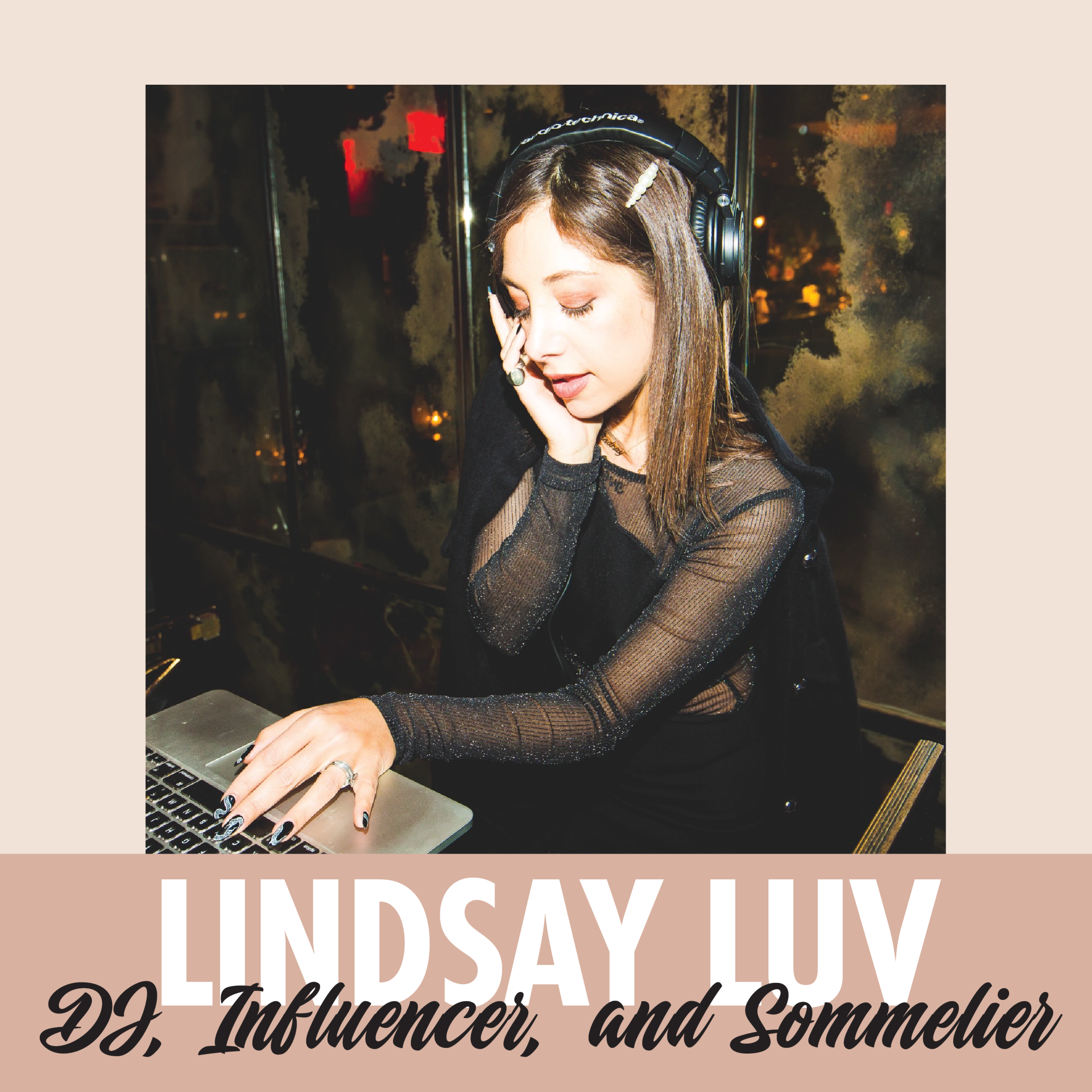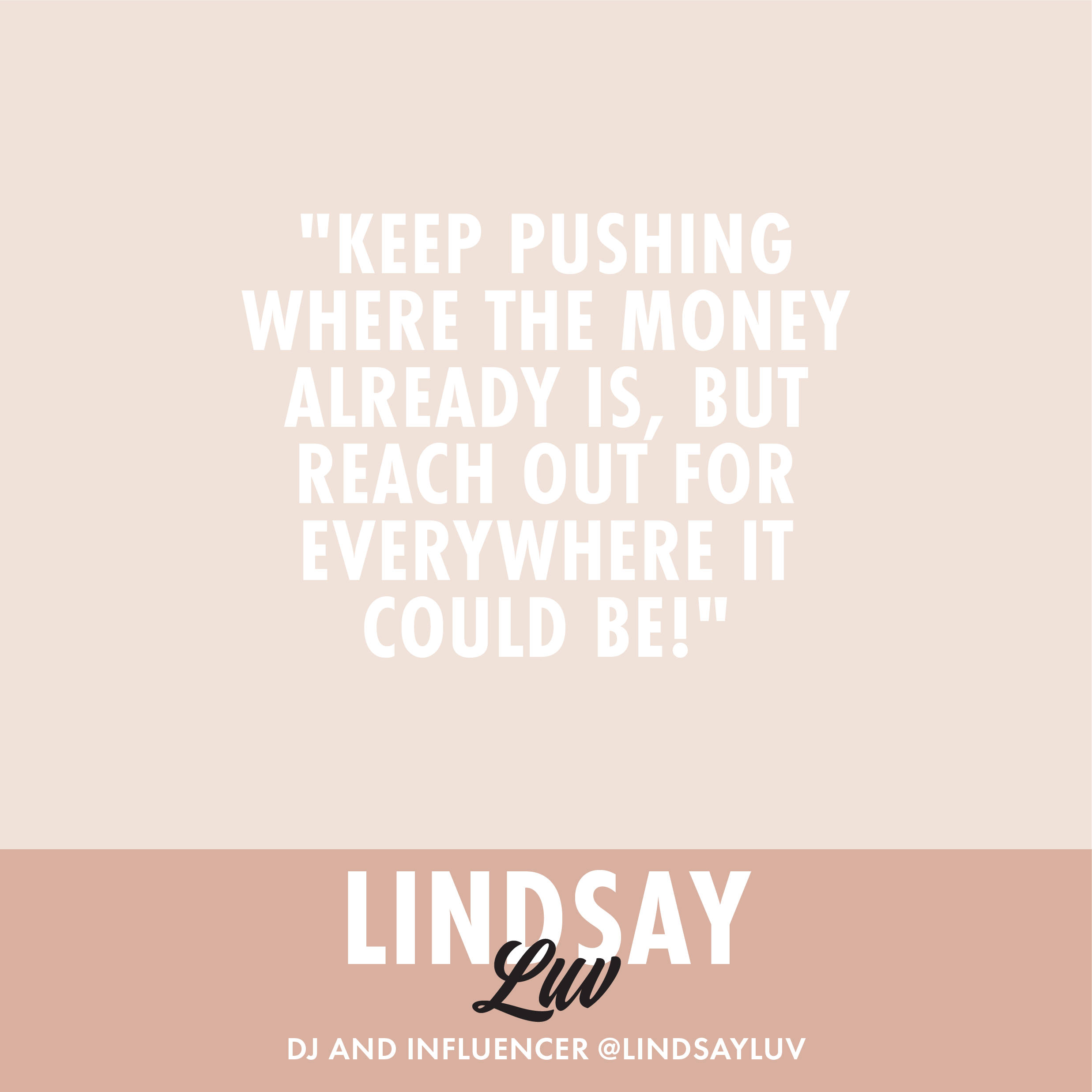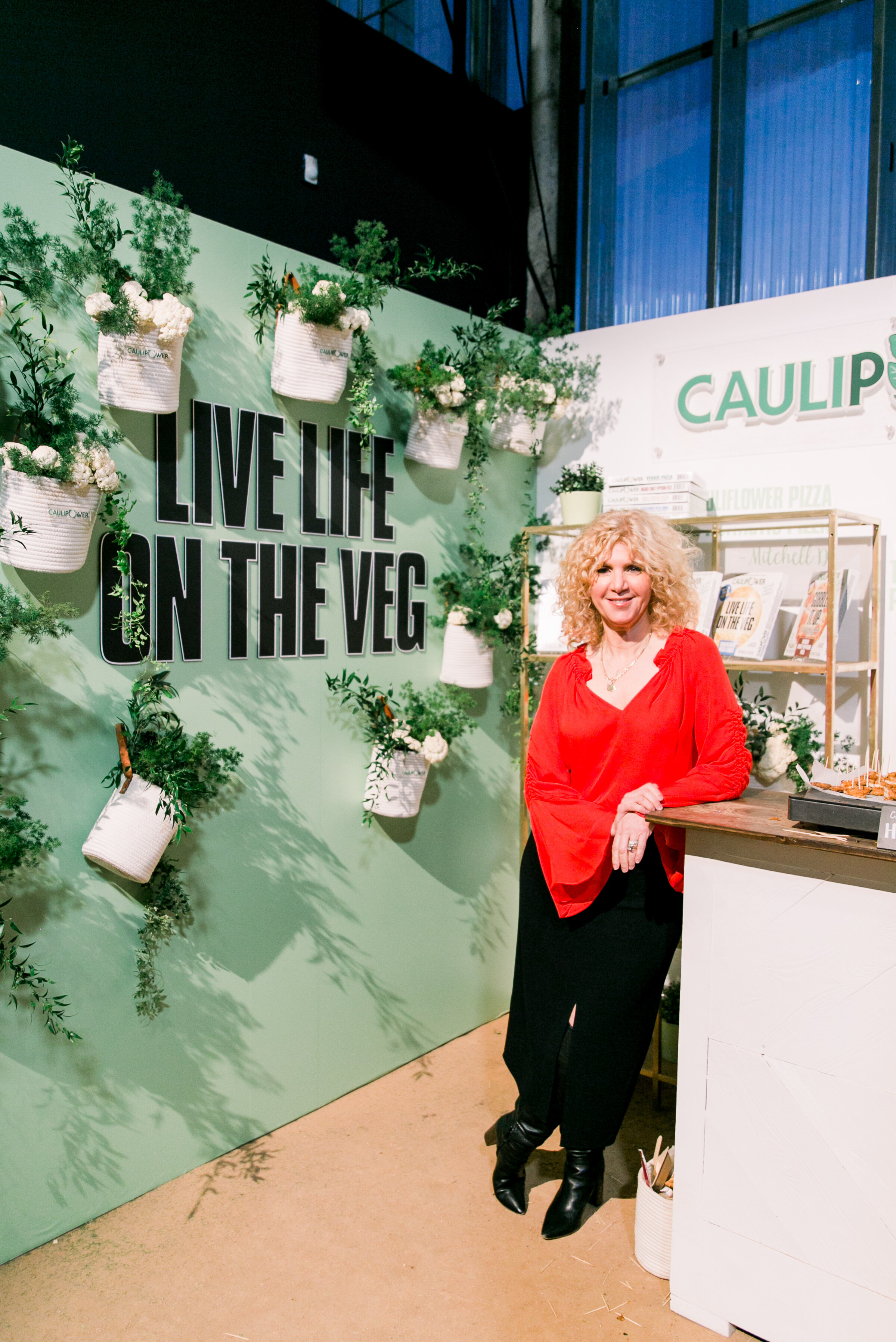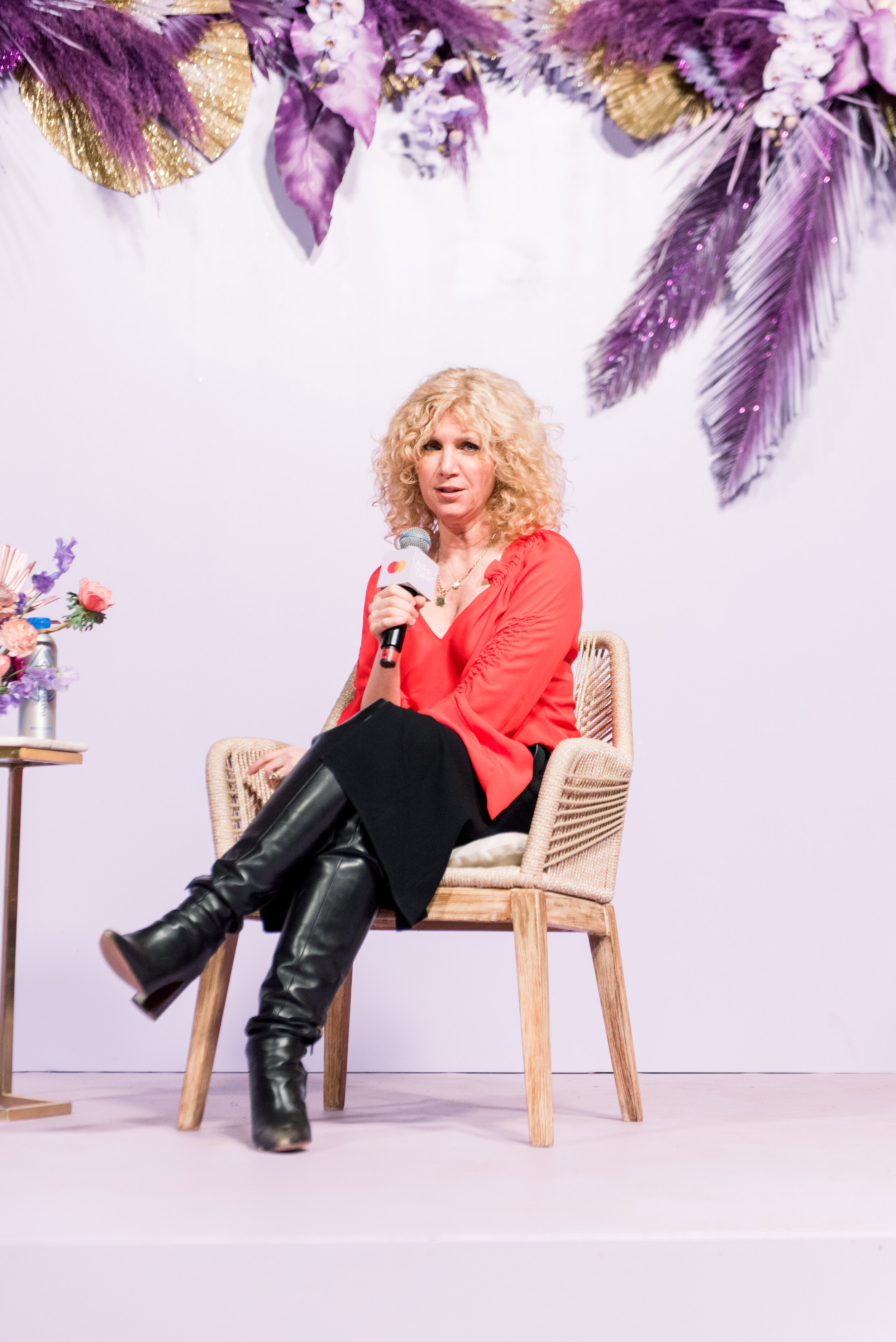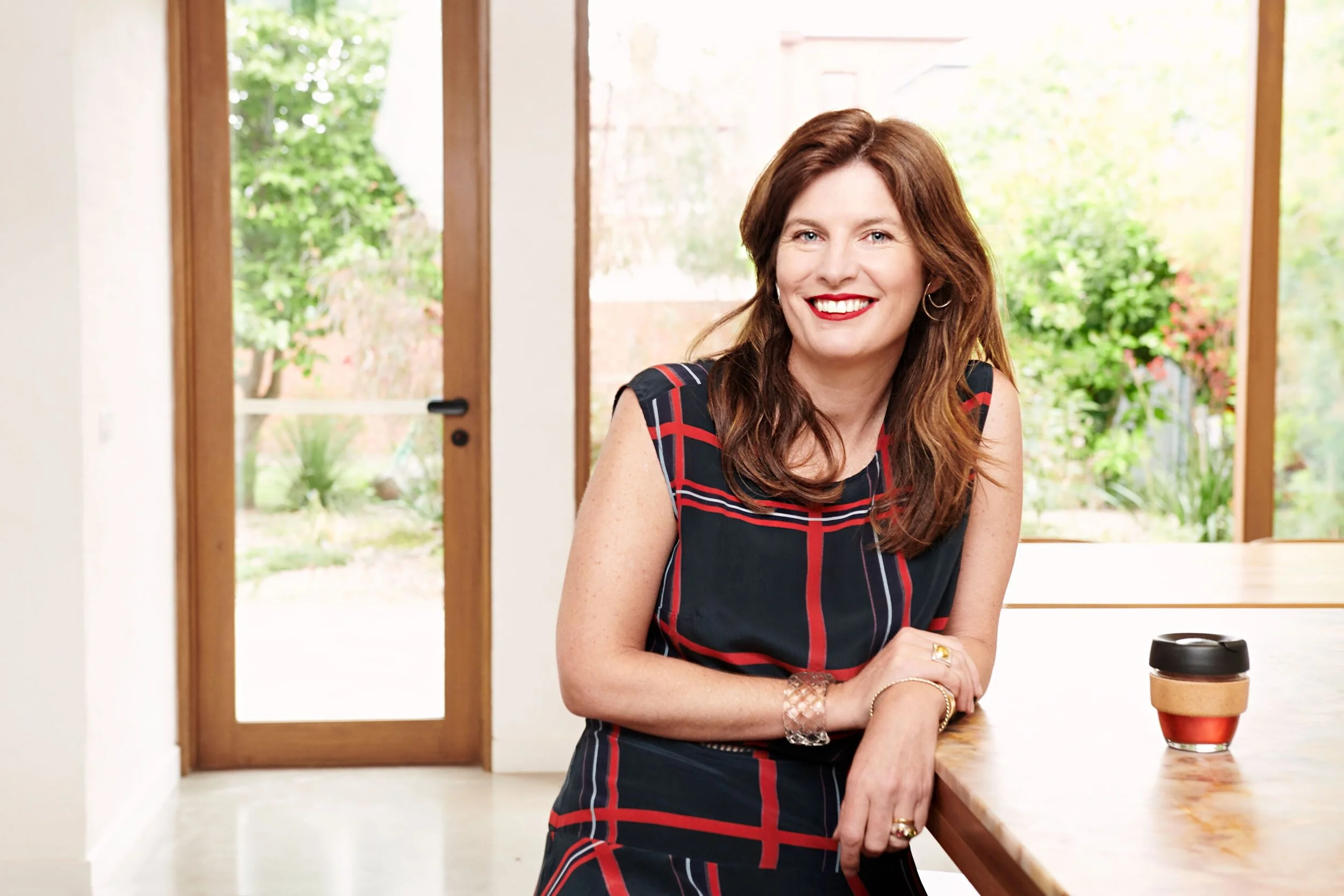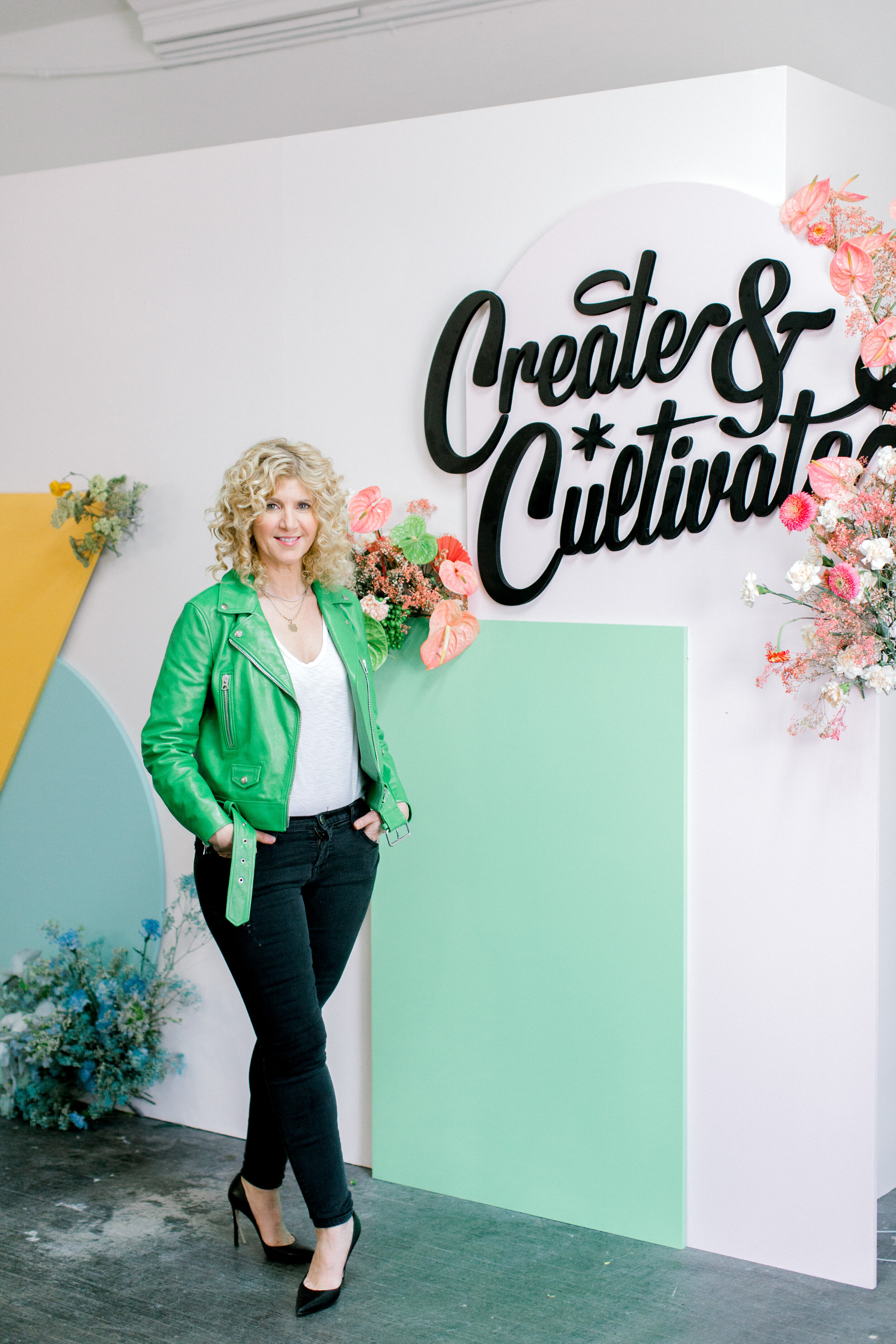Sallie Krawcheck's Top 3 Smart Money Moves to Make During the COVID-19 Crisis
The CEO and co-founder of Ellevest assuages our financial fears.
We’ve been spending a lot of time at Create & Cultivate HQ discussing how we can best show up for and support our community during this uncertain time. Community is at our core, and connecting with others through one-of-a-kind experiences is what we love to do. While the world has changed, our mission has not. We’re committed to helping women create and cultivate the career of their dreams, which is why we’re proud to announce our new Ask an Expert series. We’re hosting discussions with experts, mentors, and influencers daily at 9 am, 12 pm, and 3 pm PST on Instagram Live to cure your craving for community and bring you the expert advice you’ve come to know and love from C&C. Follow Create & Cultivate on Instagram, check out our Ask an Expert highlight reel for the latest schedule, and hit the countdown to get a reminder so you don’t miss out!
The coronavirus crisis has taken a serious toll on the economy, causing the U.S. stock market to have it's worst day since the 1987 stock crash and the OECD to cut global economic growth projections in half. Needless to say, money anxiety is at an all-time high as a result. In fact, according to a recent study, 67 million Americans anticipate they’ll have trouble paying their credit card bills due to coronavirus.
In an effort to help ease our financial fears during these uncertain times, we hosted a special Fireside Chat edition of our Instagram Live series, Ask an Expert, with Sallie Krawcheck, co-founder and CEO of Ellevest, a digital investment platform built by women, for women. Our founder and CEO Jaclyn Johnson virtually sat down with Krawcheck to answer all your most pressing money questions in the wake of the coronavirus, including how to cut unnecessary spending from your budget and how to fund your small business during quarantine closures.
Read on for three key takeaways from the conversation and head to the Create & Cultivate Instagram to tune into our next Live Ask an Expert segment.
Tip #1: Don’t stop investing.
“The question we get the most at Ellevest, is, Should I be buying? The second is, Should I be selling?,” explains Krawcheck. “The answer is you should be investing steadily for your longterm goals. You should be investing a bit of your paycheck, after you pay off debt, because if you try to time the market you will fail.”
Tip #2: Watch your expenses.
“Watch your expenses,” Krawcheck advises small business owners who are doing everything they can to keep the lights on. “Use your values to determine what expenses are important, protect your company culture, and trim where you can without hurting your core business.”
Tip #3: Contribute to an emergency fund.
Krawcheck's rule of thumb for a healthy financial future includes breaking down each paycheck (a.k.a your take-home pay) following these general guidelines:
50% of every paycheck should go toward paying for things you need (think: rent, utilities, car insurance, etc.)
30% should go toward fun (think: those extras that bring you joy, like that outfit your dying to buy or you’re favorite workout class)
20% should go toward future you (i.e., your emergency fund, 401k, IRA, etc.)
However, before you start contributing to an emergency fund, “get your credit card debt paid off because it’s leeching out wealth from you,” cautions Krawcheck.
Ellevest is answering any and all money questions that come in from the community on their blog. It's an amazing resource in these uncertain times.
Sign up for Sallie Krawcheck’s weekly newsletter, Money Monday, to stay up to date on all things women and money.
About the Expert: Sallie Krawcheck is the CEO and co-founder of Ellevest, a digital-first, mission-driven investment platform for women. Ellevest is one of the fastest-growing digital investment platforms and has been named a #24 on CNBC’s top 50 "Disruptor" list and #14 on LinkedIn’s 50 “Most Sought-After Startups” (#2 in New York). Krawcheck is also Chair of the Ellevate Network, a 135K-strong global professional women’s network, and Pax Ellevate Global Women’s Leadership Fund, a fund that invests in the top-rated companies for advancing women. Before launching Ellevest, Krawcheck built a successful career on Wall Street: She was the CEO of Merrill Lynch, Smith Barney, US Trust, the Citi Private Bank, and Sanford C. Bernstein. She was also Chief Financial Officer for Citigroup.
Tune in daily at 9 am, 12 pm, and 3 pm PST, for new installments of Ask an Expert.
Follow Create & Cultivate on Instagram, check out our Ask an Expert highlight reel for the schedule, and hit the countdown to get a reminder so you don’t miss out. See you there!
Know Your Worth, Then Add Tax: The Multi-Hyphenate's Stress-Free Guide to Doing Your Taxes
“There are talkers and doers, and people respect action the most.”
With the current COVID-19 situation, we know these are difficult times for both self-employed individuals and small businesses. In an effort to support and empower our self-employed community, we’re sharing step-by-step guidance on how to easily and affordably file your self-employed taxes with TurboTax.
The rise of the gig economy has given us multi-hyphenates, a.k.a. people who’ve built successful careers out of juggling more than one job at a time. In fact, more than eight million people—about 5% of the workforce—have more than one job. And, fun fact, the average self-made millionaire has at least three streams of income—65% have three streams of income, 45% have four, and 29% have five or more.
Of course, being a solopreneur with multiple side hustles is exciting—after all, you’ve mastered the art of multiple streams of income!—but that means tax time can be a bit complex (hello, 1099s galore).
In anticipation of the new extended tax deadline, July 15th (a.k.a. this year’s Tax Day), we sat down with Lindsay Luv, a multi-hyphenate DJ, influencer, sommelier, and more, to find out how TurboTax Self-Employed can help multi-hyphenate solopreneurs file their taxes with confidence. With the changing COVID-19 situation, these are unprecedented times. Find out all the new tax changes and understand what the Coronavirus relief bill means for self-employed taxpayers by visiting the TurboTax blog.
Be sure to keep reading until the end for the chance to win a FREE TurboTax Live Self-Employed product code (valued at $250, includes ad-on services).
Join the solopreneur tax conversation by using the hashtag #solopreneurtaxtips. Don’t be shy! We all have questions about taxes (especially now), share yours on social too!
CREATE & CULTIVATE: As a DJ, music supervisor, influencer, and sommelier, you're a modern multi-hyphenate with many careers intersecting at the same time. What advice do you have for those reading this who don't have their eyes on one career path and feel split into different areas? How do they go about it?
LINDSAY LUV: I believe expanding your brand should feel natural. If you find yourself drawn to another potential career path, perhaps think about what you’re already doing and how it can lend itself to the other. I never say I am “switching gears” because that sounds like you are closing the door on what you have already done; rather I say I am “expanding my brand” because that simply opens more doors. You never lose the skills you have already built, so why not develop and share more as you go!
Also, the difference between those who say they are going to do something and those who actually take the plunge is vast. Sometimes you need to just rip the bandaid off! When it came to getting certified as a sommelier, I simply signed up and paid for the class and then showed up: that's half the battle! Wine goes hand in hand with music and events and sharing my finds (i.e., influence) so I am always thinking of ways to overlap my skill set. There are talkers and doers, and people respect action the most.
With your many careers, it’s safe to say that you’ve mastered the art of multiple revenue streams—and we here at Create & Cultivate love a woman who isn’t afraid to shy away from wanting to build a profitable business—So, can you tell us, why is it important to diversify?
With humans living longer lives they are actually predicting many of us will indeed have multiple professions across a lifetime! Just like relationships change and grow over time so do our interests and skill sets, and it is important to check in with yourself each step of the way and reflect on how your profession is serving you and how you are serving it.
I am someone who always loves to be steps ahead. If I see a door starting to close (whether by choice or otherwise), I am thinking of which ones I can open: which parts of my career, relationships and learnings can I utilize for a new profitable task.
Working for yourself means you have to hustle and keep up with both your own goals and the demands of the market. Since I started working for myself, so many elements keep changing from social media to client’s needs and unless you are evolving with them you are lagging behind (and losing money in doing so.)
As we’re sure you can attest, you have to fall in love with the numbers when you’re running your own business, especially when that involves managing multiple income sources—What are some of the hardest money lessons you've learned along the way? And what are some of the tools you use to stay on top of your business financials?
As my own agent, sometimes it is awkward to chase down payments due. You run that line between wanting to seem relaxed with clients, but also simply needing to be paid for work done. Sadly, sometimes clients will put you in an awkward spot with pay delays or trying to pull out of things last minute, etc. I find it is helpful to have an assistant oversee the communication about payment with clients so you don’t always have to be the face of the tedious back and forth that can occur.
I also leverage technology to remind myself of when payments are due and space out reminders to follow up. I use resources and tools such as QuickBooks Self-Employed to keep myself organized year-round, keeping track of my personal and business expenses as well as receipts. I can import all my business expenses to TurboTax Self-Employed making taxes a breeze! I like their Live product since it brings the best of both worlds, the ease of technology plus the human touch and expertise of a real tax expert. At the end of the day, you want to make sure you feel confident you are getting your self-employed taxes done right and are getting every dollar you deserve.
You've been very smart and savvy with your business and it's been incredibly profitable—Where do you think is the most important area for a solopreneur or small business owner to focus their financial energy? Why?
The reality is you should focus your heaviest energies on hustling and maintaining work wherever you are gaining the most momentum. For me, that has always been DJing, but now, with my social media growth, I am seeing new profitable opportunities arise in a variety of areas outside of the decks, so it has my wheels spinning on how to grow those. Keep pushing where the money already is, but reach out for everywhere it could be!
Do you think you have achieved financial freedom? If not, what is preventing you as a self-employed professional to get there? What would you need to get there?
Yes! I have been self-employed and my own agent for over ten years, which feels like freedom to me. I am able to comfortably afford a lifestyle I feel good about and contribute to my family, which is the best you can hope for. I also balance between being a full-time mom and a working mom by accepting quality over quantity job opportunities.
With that being said, human nature is to want more, so in some ways, working for yourself is always complicated and you never can fully relax into a full feeling of freedom. It is important to never get too comfortable because being self-employed always means the onus is on you to hustle and grow. While a lot of work does come to me after having established myself over a decade, it is important for me to touch base with all my clients regularly and share my successes; plus, remind them of all we have done and what we can do going forward!
What are you most excited about for your business in 2020?
I have been putting feelers out for so many possible brand expansions and seeing which ones stick. I am never afraid to reach out to great contacts or throw out ideas and see which ones materialize, as I believe both my business acumen and skillset can lend themselves to a variety of areas, from public speaking, hosting, podcasts, music supervision, influencer collaborations, consulting, sommelier opportunities, and more. Not every one of these will become the next big (or most profitable) part of my brand, but without opening up to a multitude of ideas and putting some muscle behind them you won’t know which one could and will!
Our friends at TurboTax were nice enough to share a giveaway with Create & Cultivate readers so you can file your taxes for FREE this season—all from the comfort of your own home!
30 readers will receive a FREE TurboTax Live Self-Employed product code (valued at $250, includes ad-on services). Simply fill out the form below to enter to win. The winners will be chosen randomly and contacted via email. Good luck!
TurboTax Live combines the ease and technology customers know and love about TurboTax with on-demand credentialed CPAs, Enrolled Agents, or Tax Attorneys, for ultimate convenience and confidence. You can connect live to a team of real credentialed tax experts in English or Spanish, for unlimited tax advice and a final review before you file.
Giveaway now closed, thank you for entering! We will email the winners directly.
We Found 7 Resources to Provide COVID-19 Financial Relief for Small Businesses
You’ve got this.
Photo: Smith House Photography
We know every small business is being affected by the COVID-19 crisis right now, and our team at Create & Cultivate is here to help. Our mission—and our passion—is to help people create and cultivate the careers of their dreams, so quite frankly, there’s no better opportunity for us to be of service than right now.
In order to help small business owners navigate this uncertain time, we’ve compiled a list of relief resources and basic information for how to confront the COVID-19 pandemic. If you’re seeking a low-interest loan, needing to pause your student loan debt, or looking to apply for a small business grant, we’ve tracked down resources to help you do just that.
If You’re Seeking a Low-Interest Loan…
The Resource: U.S. Small Business Administration SBA Disaster Assistance
The Details: “The U.S. Small Business Administration is offering low-interest federal disaster loans for working capital to small businesses suffering substantial economic injury as a result of the coronavirus (COVID-19) in all U.S. states and territories.
These loans may be used to pay fixed debts, payroll, accounts payable and other bills that can’t be paid because of the disaster’s impact. The interest rate is 3.75% for small businesses. The interest rate for non-profits is 2.75%.
SBA offers loans with long-term repayments in order to keep payments affordable, up to a maximum of 30 years. Terms are determined on a case-by-case basis, based upon each borrower’s ability to repay.”
How to Apply: Apply for assistance here.
The Resource: Kiva
The Details: "Kiva lenders have shown their commitment to providing financial assistance to all by making 0% interest loans to entrepreneurs in the U.S. on Kiva.org for the last 10 years.
In today's difficult circumstances, we'd like to make it as easy and impactful as possible for small businesses in the U.S. to have access to affordable capital on the Kiva platform—capital that may be the difference between shutting down and keeping their doors open.
Effective immediately, U.S. applicants for a Kiva loan will have access to the following: Expanded eligibility: More businesses in the US will be eligible for a Kiva loan; Larger loans: The maximum loan on the Kiva platform will increase from $10,000 to $15,000; Grace period: New borrowers may access a grace period of up to 6 months for greater financial flexibility.”
How to Apply: Apply for a loan here.
If You Want to Pause Your Student Loan Debt…
The Resource: Department of Education Federal Student Loan Relief
The Details: “If you’re having trouble making payments, contact your loan servicer as soon as possible. If you have a Federal Perkins Loan, contact your school. You can easily avoid the consequences of delinquency or default by staying in touch with your servicer or school.
Your servicer or school can provide information about deferment or forbearance options that allow you to temporarily stop making payments on your loans. You may also be able to change to a different repayment plan that would give you a lower monthly payment.”
How to Apply: Contact your loan servicer, or your school if you have a federal Perkins Loan.
If You Want to Apply for a Small Business Grant…
The Resource: Facebook Small Business Grants Program
The Details: “Facebook is offering $100M in cash grants and ad credits for up to 30,000 eligible small businesses in over 30 countries where we operate. We’ll begin taking applications in the coming weeks. In the meantime, you can sign up to receive more information when it becomes available.“
How to Apply: Sign up to get updates about Facebook’s Small Business Grants Program here.
The Resource: Zapier Small Business Assistance Program
The Details: “Zapier is creating a $1 million small business assistance program for businesses to heavily impacted people who meet some combination of these criteria: You work in a business with 10 employees or fewer, or you're a solo entrepreneur, your business is privately owned, your business is impacted by "social distancing" in an outsized way (the tourism, food service, hospitality, salon and spa, fitness, and education industries are some examples), and you're a paying Zapier customer as of 3/20/2020. Small businesses in need can qualify for a free 3-month credit for a starter plan.”
How to Apply: Fill out this form.
The Resource: Bumble Loves Small Businesses
The Details: "Bumble is granting a number of small businesses up to $5K to help during this trying time. At this time, we are only accepting requests from small businesses and will verify all company registration numbers. If you’re not a small business owner, you can fill out this form to nominate a small business (or forward this link to them!).”
How to Apply: Fill out this application form.
The Resource: The GoFundMe.org Small Business Relief Fund
The Details: “The Small Business Relief Fund will provide one-time matching grants to qualifying small businesses to help alleviate the financial burdens during these pressing times. To qualify for a matching grant from the Small Business Relief Fund, the GoFundMe fundraiser must raise at least $500 and verify that your small business has been negatively impacted by a government mandate due to the COVID-19 pandemic. Your small business must be independently owned and operated, and must not be nationally dominant in your field of operation. Each recipient of the matching grant must intend on using the funds to help care for your employees or pay ongoing business expenses."
How to Apply: There are a few ways for small business owners to apply:
“Claim your fundraiser. Many small businesses will have a fundraiser automatically created for them through the Yelp platform. To claim this fundraiser and donations made to it, you can submit a request through the form above.”
“Start a new fundraiser. If you do not have a fundraiser already created for your business, you can start one now. In your fundraiser description, please make sure you add the hashtag #SmallBusinessRelief. Then fill out this form to confirm your small business.”
For more information and resources on how to navigate the coronavirus crisis as a small business:
Calculate how much you’ll get from the $1,200 (or more) coronavirus checks being provided by the U.S. government with this calculator tool from The Washington Post. Plus, learn when your check will arrive, and more.
Consider scrolling through this list of national and state-specific funds, grant, and resources for business owners grappling with coronavirus compiled by Forbes.
For rent assistance, scroll through this comprehensive list of how to get COVID-19 rent relief compiled by Investopedia.
It’s important to note, however, that even if your state has taken action to pause or suspend evictions, anywhere from 30 to 90 days, it does not relieve you of your obligation to pay your rent. It just forbids your landlord from evicting you during that period for late payment.
Subscribe to a special edition of Deloitte’s Resilient podcast series all about how businesses can confront the COVID-19 crisis.
Subscribe to Forbes free daily newsletter, Outbreak, for stories on the coronavirus pandemic and its impact on global business.
And head to our COVID-19 Content hub and follow Create & Cultivate on Instagram to tune in as we go live daily with experts in business, finance, and more in our Ask an Expert series daily at 9 am, 12 pm, and 3 pm PST.
MORE ON THE BLOG
Ask an Expert: Here Are 7 Things a Financial Expert Says to Do to Prepare for COVID-19
“This is a public health crisis, this is not a financial crisis.”
We’ve been spending a lot of time at Create & Cultivate HQ discussing how we can best show up for and support our community during this uncertain time. Community is at our core, and connecting with others through one-of-a-kind experiences is what we love to do. While the world has changed, our mission has not. We’re committed to helping women create and cultivate the career of their dreams, which is why we’re proud to announce our new Ask an Expert series. Starting today, we will be hosting discussions with experts, mentors, and influencers daily at 9 am,12 pm, and 3 pm PST on Instagram Live to cure your craving for community and bring you the expert advice you’ve come to know and love from C&C. Follow Create & Cultivate on Instagram, check out our Ask an Expert highlight reel for the latest schedule, and hit the countdown to get a reminder so you don’t miss out!
Photo: Courtesy of Kristin O'Keeffe Merrick
Needless to say, the coronavirus outbreak has financially impacted businesses both large and small and employees and employers alike. With the OECD cutting global economic growth projections in half, the JPMorgan Global Manufacturing Purchasing Manager’s Index (PMI) falling to its lowest level since 2009, and U.S. stocks having their worst day since the 1987 stock market crash, it’s safe to say money anxiety is at an all-time high.
To help assuage our financial fears, we tapped money expert and financial advisor Kristin O'Keeffe Merrick, a financial advisor at O'Keeffe Financial Partners, for the first-ever installment of our Instagram Live series, Ask an Expert. She answered all our burning money questions in the wake of the coronavirus, including, how to cut unnecessary spending from your budget and how to fund your small business after you've maxed out all your credit cards.
Read on for seven things you can do right now to feel financially stable, and be sure to tune into our next Ask an Expert conversation with Jamie Lieberman, attorney and founder of Hashtag Legal, on force majeure and if you can get out of a contract due to unforeseeable circumstances, tomorrow at 9 am PST on Instagram Live. Trust us, you won’t want to miss it!
1. Take stock of your subscription services.
“If you haven’t used your Hulu subscription by day four of self-isolating, you probably don’t need it. If you’re in a cash crunch, consider canceling or putting subscriptions you’re not using right now on hold."
2. File your taxes.
“If you’re worried about a cash crunch and you might be in line to get a refund, file your taxes early. If you’re a freelancer or an entrepreneur, you might need some liquidity right now, so think about filing now to get that refund.”
3. Make an IRA contribution.
“If you have a high risk tolerance for investing, put your IRA money to work.” (Note: If you’re a first-time investor, you should seek out professional advice before taking action here.)
4. Pay off debt.
“If you’re still getting a regular paycheck, use this as an opportunity to pay off some debt and put some money into an emergency fund.”
5. Start a savings account.
“One of the silver linings is that we’re not going out and spending money on drinks/dinner/coffee. Consider moving the money that you’d normally be spending to live and enjoy your life to a savings account or an emergency fund.”
6. Create a budget.
“Think about your fixed and variable costs. Fixed costs are things that won’t go away no matter what: your rent, car insurance, utilities, mortgage, etc. To look at your variable costs, pull up you bank and/or credit card statements for the last three months, and look at how you’re spending your money. Think about where your money goes and why you can’t save money; think about all the things you can lower and ways to allocate ways to save money.”
7. Read books that can help you get more financially savvy.
“If you’re looking to get more financially savvy, there’s no better time. One of the few money books I love is You Are a Badass at Making Money. Don’t overwhelm yourself with info, but use this time to get familiar with financial terms or investment terms.”
About the Expert: Kristin O’Keeffe Merrick is a money expert and financial advisor at her family-run firm, O'Keeffe Financial Partners, based in Fairfield, NJ. Kristin has over 19 years of investment experience, having spent the first part of her career as currency trader, and serving most recently as Vice President at Morgan Stanley. She has contributed to Forbes, CNBC,NY Magazine, Girlboss, Hey Mama, My Domaine, and Coveteur. She is a frequent guest on the Today Show, the NBC Nightly News and Yahoo Finance. Kristin was also recently named as 2020 Badass 50 by InStyle Magazine.
Tune in daily at 9 am, 12 pm, and 3 pm PST, for new installments of Ask an Expert.
Follow Create & Cultivate on Instagram, check out our Ask an Expert highlight reel for the schedule, and hit the countdown to get a reminder so you don’t miss out. See you there!
"I Maxed Out All of My Credit Cards and Lived Off Savings"—Now She's Built a $100M Company
CAULIPOWER CEO, Gail Becker gets real about bootstrapping, raising money, and running a multi-million dollar business.
You asked for more content around business finances, so we’re delivering. Welcome to Money Matters where we give you an inside look at the pocketbooks of CEOs and entrepreneurs. In this series, you’ll learn what successful women in business spend on office spaces and employee salaries, how they knew it was time to hire someone to manage their finances, and their best advice for talking about money.
“I took a risk and bet on myself. That’s the hardest part. If you don’t bet on yourself, who else ever will?”
—Gail Becker, CEO of CAULIPOWER
Money: like religion and politics, it’s off the table but if there’s one thing we need to talk about more, it’s money, especially as women. Why? Because more women than ever before are starting their own businesses and they’re growing at twice the speed. In fact, a new report found that 42% of all firms are female-owned and women started 1,817 businesses a day in the past year. Despite that, women-owned businesses still struggle to get crucial financing so we need to ditch the taboo and open up a public dialogue to better understand how to raise it, manage it, and grow it.
Someone who is boycotting that ban is the founder, and CEO of CAULIPOWER, Gail Becker. Since 2017, Becker has built a $100m company and completely disrupted the food industry to become the #1 better-for-you pizza in the U.S. At our recent LA2020 conference, Becker had some no-filter money advice, especially around the topic of raising it. Having taken on two rounds of investment for CAULIPOWER, she knows each entrepreneur must make the right choice for them. “Just because you can raise more money, doesn’t mean that you should” she told the audience. “It’s not a symbol of how successful you are… or will be.”
Becker also decided against a friends and family round for her startup. “It made me nervous to play with my friends’ and family’s money,” she explained. “I waited as long as I could before seeking outside funding. I used all of my own money initially and maxed out all my credit cards.” There are different ways to fund your business and, ultimately, it needs to come down to what you feel most comfortable with and what your business needs are,” she explained. “I took a risk and bet on myself,“ she said. “That’s the hardest part. If you don’t bet on yourself, who else ever will?”
So, we tapped the powerhouse founder and CEO to share more of her money lessons, mistakes she’s made, and advice for small business owners. Read on and grab a pen, you’ll want to write these down.
On bootstrapping the company in the beginning…
When I first started CAULIPOWER, my goal actually wasn’t to make money. My dad, who was an entrepreneur and a Holocaust survivor, had recently passed away, and it made me recognize the fragility of life. I had been working my way up the proverbial ladder of corporate America, and then decided that I really didn’t like the view. I wanted to do something more meaningful with my life and I realized that I needed to make a change. That, along with my frustration in what I was seeing in the freezer aisle, created an ‘aha' moment that inspired me to launch CAULIPOWER.
My dad had left me with a small amount of money, and I knew the best way to honor his memory was to follow in his entrepreneurial footsteps. I knew how hard my father worked for every dollar he made, so I spent each one cautiously. I also put in a fair amount of my own money and lived off my savings. On a personal note, it was an interesting transition for me. I was coming from a comfortable job in corporate America with a comfortable salary, and I was used to a certain lifestyle.
When I started CAULIPOWER, I said goodbye to that life and paid attention to every dollar that I was spending, both personally and for the company. I downgraded my lifestyle significantly, saying goodbye to any shopping (outside of the grocery store) and vacations, and even sold most of my former wardrobe such as purses and shoes online. Even that wasn’t enough to sustain the launch of CAULIPOWER, so I maxed out all of my credit cards and tapped into more of my savings.
While this was the right decision for me, everyone has to choose the route that makes sense for them. For me, this was the only way I could bring my vision to life. I was nervous to take money from friends or family, but that doesn’t mean that’s the wrong choice for others. In hindsight, I have several friends and family who now wish I would have asked. At the time, I just followed my gut and made a choice about how I could make things work without negatively impacting others.
On raising money twice since then…
I raised money for a few reasons. First, the frozen food industry is an extremely cash-intensive business. You have to make the product before you can sell it, and there’s a pretty quick need for money given cash flow. When it comes to raising money, timing is incredibly important. I learned quickly that you should try and build the business as much as possible before you raise money. Why? The smaller your business is, the more of the company you will have to give away when you raise money in exchange for equity. Ideally, it’s best to try and hold off until you’ve made some actual sales.
Having said that, one of the worst things you can do is starve a business from cash. Cash is like fuel. We need it to make our products, to pay for promotions, to hire staff, and to market the brand. The timing of it all is a delicate balance between raising too much money, forcing you to give away more of the company when it is of the least value and starving the business, stunting its growth and first-to-market advantage.
“Just because you can raise more money, doesn’t mean that you should. It’s not a symbol of how successful you are or will be.”
On the most surprising part of the venture capital process…
I was surprised at how personal the process became. It would be easy for someone to interpret reactions as a reflection of the quality of one’s idea. If a VC didn’t want to invest in CAULIPOWER or wanted to wait for more data, I questioned myself. What did that say about my idea? The reverse was also true. When you find a partner that believes in you and is prepared to invest money into your business, it can be an incredible confidence boost. It’s a moment when you finally think, maybe this idea is not so crazy after all?!
One of the biggest mistakes that some people make during the fundraising process, is the instinctual desire to take money from the first person that offers it. You should always try to take ‘“smart” money—money from people who know more about the industry, category, and process of building a company than you do. What’s most important is to take money from people who will work hard for you and your idea.
Another part of the fundraising process that surprised me was how similar it was to, well, dating?! Remember, they’re not just interviewing you; you’re interviewing them too! You have to ask yourself ‘who do you want to be in the trenches with you for the long-term? Who will be there for you when the times and decisions get tough—because they will! Who shares your vision?
On the most common mistakes people make when raising money…
Raising too much. Just because you can, doesn’t mean you should. The ability to raise large amounts is not an indicator of the success of your business, rather it’s an indicator that a lot of people will be counting on you and you better deliver. It’s important to raise what you need, which should be enough to hold you over for a while, but not forever. From there, you can build the company to something bigger, then raise more money when it becomes more valuable. My first round of funding was $2M.
“One of the worst things you can do is starve a business from cash—cash is like fuel. ”
On the three crucial elements, every pitch deck should include…
First, you need to show the potential of the company or the white space. Why is this the right business at this time? What hole are you filling that currently doesn’t exist? Another crucial element is the data. You should try and show as much data as you can, even if you have to buy some of it. Show the real performance of your product if it's currently in stores, or use other competitive data to give a sense of how it might do. If it’s not already in the market, you need to prove why you believe it would do well, and this is best accomplished by definitive proof points. Show them that you have done your homework and that you don’t expect anyone to just take your word for it.
Finally, you need to show your passion. Most investors are not just investing in the business; they’re investing in YOU, the entrepreneur. If you're not passionate—and confident—about your own idea, then it really doesn't matter how good of a business plan you have.
On how much she paid herself in the beginning…
I didn't pay myself in the beginning. I lived off of my savings from about May 2016 to September 2017. Once I got VC funding, they made me take a salary and I’ve had the same one ever since. For comparison purposes, it is less than 1/5th of what I used to make when I worked in the corporate world… but I couldn't be happier.
On her first hire…
My first hire was someone who helped me fill out the deluge of paperwork I was facing from the retailers, brokers, and distributors. I realized all the time I was spending with paperwork was a huge opportunity cost and that my time would be better spent in other areas of the business.
On the first big expense as a business owner…
The first order I placed to make the first product.
On when she hired an accountant…
One of the best things about the economy we live in is that you can hire contractors to help you with just about anything. Thanks to some referrals, Google, and some other people I had met in the industry, I came across an agency that performed CFO duties for-hire for small companies. As soon as I got my first order, I knew I had to hire them.
I strongly believe that the most important thing to know as a first-time entrepreneur is to know what you don’t know and then hire around it. Many entrepreneurs mistakenly believe that they somehow need to know all aspects of their business. Nothing could be further from the truth. Know what you know and then hire experts to fill in the gaps.
“Know what you know and then hire experts to fill in the gaps. ”
On the most important area for business owners to focus their financial energy…
Put it into making the best product or service you possibly can. At the end of the day, you can have everything else figured out, but if you don’t have a product that people want, nothing else matters.
On why women should talk about money and business more…
When I was in my first marriage and at my old job, I’m embarrassed to admit that there was a lot I didn’t know about my own finances. I wasn’t financially illiterate, but I never made it a priority to become informed. When I got divorced, the need to become financially literate hit me in the face. I remember thinking, “I will never do that again.”
On having a financial mentor…
I did have some incredible people in the industry (and outside of it) that I looked up to, asked lots of questions of and with whom I’ve stayed connected. I never really had a financial mentor, but then again that wasn’t the primary reason why I started CAULIPOWER. My initial goal wasn’t to make lots of money; it was simply to help people have access to better options. If that’s why you start your business though, then that’s fantastic and finding a financial mentor might be the right choice for you. Now that I am running a business and am responsible for other people, the financial decisions I take on have tremendous importance.
On the money mistakes she’s made and learned from along the way…
I think it all depends on whether you’re new to your industry or if you have a background in it. If I had any sort of experience in the frozen food space prior to launching CAULIPOWER, I probably could have made some different decisions. Since that wasn’t the case, I placed a lot of trust in other people. I trusted that they knew more than I did and there’s a fair amount of trust that I probably placed blindly. In some cases, that ended up having a high price tag associated with it.
“If you’re not passionate—and confident—about your own idea, then it really doesn’t matter how good of a business plan you have. ”
On her best money advice for new entrepreneurs…
You don’t have to know all of the answers. You just have to know enough to hire the people who do. Just because you may not be a financial wizard, it doesn’t mean you shouldn't go into business. Just surround yourself with the right people who can teach you…and ask lots of questions. Daily.
I don’t equate money and happiness. The experience of launching and building CAULIPOWER showed me that one of the reasons I was so hesitant to leave my stable career is that I thought I had a great life. There was this inherent fear that if I lost all of those trappings that I had grown accustomed to, I wouldn’t be happy.
Today people who know me often hear me say “half as rich, but twice as happy” and no sentiment could be truer. Now, I realize that those things didn’t matter at all and the chance to build CAULIPOWER, take a bet on myself and help other people along the way has been the greatest professional joy of my life. I hope these words help to realize the same in you.
To learn more about CAULIPOWER and try their delicious pizzas, visit eatcaulipower.com.
Sharing Finances? Here Are 5 Ways to Do It Right
Joint lives? Joint account?
Photo: Retha Ferguson for Pexels
In April of 1975, Judy Hendren Mello created the First Women’s Bank in Manhattan.
It was the first bank in the United States to be run by and operated for women, during a period where women were highly discriminated against by banks. (Fun fact: Betty Friedan had an account there.) Just one year prior, banks required single, widowed, or divorced women to bring a man to co-sign any credit application, regardless of their income.
Thankfully, much has changed since then, and more women are household breadwinners than ever before, as well as finding ways to to split costs with their partners. Given that wedding season is rapidly approaching, we figured there’s no better time to break down five different approaches to sharing finances that have worked well for couples.
The 2:1 Approach
This is a scenario in which you keep most of your finances separate, but have one joint account you both contribute to equally.
You can choose to contribute a dollar amount or a percentage of monthly earnings to that account. With one joint account, you are taking baby steps to trusting your significant other with your money. You get to see how they spend and if you’re comfortable giving them purchasing power with your hard earned cash.
Most often, couples who live together and are fairly evenly matched when it comes to income and debt favor this approach. That way the joint account is what you use for household purchases—everything from toilet paper to a new couch.
The Solo Dolo
Some couples keep all finances separate, and it works for them. If each of you are financially independent, have no desire to share finances and would rather split household expenses in a way that makes you the most comfortable, this is an easy option.
Sometimes that means splitting things 50-50. Sometimes that’s not the case. If it’s not, we suggest having a conversation, especially if one side of the equation makes a significant amount more. What you don’t want is to commit to a living or a financial situation where you feel taken advantage of, or where you resent how much the other person is making and contributing.
If you really like keeping everything solo, but your incomes are vastly disparate—we suggest the next approach to avoid future disagreements.
The Pick-and-Choose
This approach is best for couples who share everything, except comparable salaries. When you don’t want to let one person “handle it all” (which, is certainly another way to go), but rather want each party to contributing their “fair share,” each person picks certain bills and expenses.
These don’t have to be equal shares.
For instance, if you own a house together, one person pays the mortgage and the other fills the fridge. Or perhaps, one of you pays the rent and the other handles electric, gas, and the WiFi situation.
This works for both unmarried and married couples. The most important part of this arrangement, is that each person is getting a fair shake, not a shake down.
With the pick-and-choose, and all the above options, individual debts remain the responsibility of the indebted, however, this could (and often should) be considered when splitting up costs.
The Spend One, Save One
This is an interesting approach being taken by couples who have not yet made those major life purchases, but are working toward them.
They will live on one salary—typically the larger—and save the entirety of the rest. This is also a useful approach for couples who haven’t yet been able to put away that rainy day money or save for retirement. It typically involves living below your means, but is a smart investment to make in your future.
The Merge It All
This is an approach most often used by married couples who combine their lives, finances and all, entirely. Most often, neither party is entering into the marriage with significant assets—like a house—as this is a purchase that will be made together. Or debts, like student loans, that need to pay off.
However, even within “merge it all” it isn’t uncommon for couples to share one joint account while keeping individual checking accounts. What you put into those individual accounts? It varies. Bonuses or checks from grandma and grandpa could be considered “fun” individual money. Cash that doesn’t have to go toward life expenses and allows each person to feel like they’ve got some disposable income.
This post was published on May 23, 2017, and has since been updated.
15 Headache-Preventing Tax Tips You Can Use Right Now
Tackle tax season like a pro.
Photo: Smith House Photo
Overwhelm. Cold sweats. Glazed-over eyes.
Every year, these are the emotions felt by many of us come April 15, a.k.a when it’s time to file our tax returns. It seems like tax season sneaks up on us every year, and no matter how hard we try to be proactive, to plan and prepare, most of us are left doing everything at the last minute.
So to help you get a handle on your taxes this year—and better prepare for tax season next year—we asked Natalie Asghari, a CPA at NA Business Advisors and CPAs, Inc. (NABA), to share tax tips that we can all implement into our financial life. Whether you’re employed full-time, self-employed, or working several side hustles, scroll on to find out how to get your 2019 taxes in order.
Tips for Everyone
1. Gather all your records in advance.
Gather all documents or forms you’ll need when filing your taxes: receipts, canceled checks, and other documents that support income or deductions you’re claiming on your return.
Always keep originals. Make copies of all valid documents that you will provide for filing.
Group together documents regarding mortgage interest payments, property taxes, charitable gifts, medical bills, and any other items that may count as deductions.
2. Keep track of important records.
The best way to do this is by staying organized throughout the year. Don’t wait until the end of the year to consolidate your documents. Gathering information at the beginning of the year will save you time and reduce the chance of omitting information and amending tax returns when it actually comes time to file.
Keep track of your expenses on a quarterly or monthly basis by record keeping, especially if you are self-employed.
Keep a record of tuition, books, computers, and fees that you pay because you may be able to claim an education credit or deduction for the amounts you pay.
Records need to be kept for at least three years (four for state of CA) from the date you filed the related income tax return. You should keep a copy of your actual tax returns, W-2s, 1099s, etc.
3. Decide how you’re going to file.
Be sure to consider different tax statuses if you are eligible for more than one. For example, if you’re married and can file either jointly with your spouse or separately, be sure to consider both options. This might be something for you to investigate throughout the year, especially if your circumstances change.
4. Review! Review! Review!
Don’t rush. We all make mistakes when we rush. Mistakes will slow down the processing of your return. Be sure to double-check all Social Security numbers and other personal information on your return. Remember, you are the taxpayer signing the return and you are responsible for any missed information.
5. Keep up-to-date on tax laws.
While it might be a good idea to get expert advice regarding tax law, you should also keep an eye on the news for anything that might affect you or your business. A well-informed client can often help an accountant give the best advice, so make sure you know about any changes in tax provisions that could apply to you. Ask questions if you believe something you read or heard may affect you.
6. Hire an accountant or professional tax preparer to do your taxes.
Because constant changes make the tax code more complex each year, you may be more comfortable–and able to use tax savings strategies, pay fewer taxes or receive a bigger refund–if you have a professional prepare your returns.
Tips for the Self-Employed
7. If you are self-employed, you may have to make estimated tax payments.
This applies even if you also have a full-time or part-time job and your employer withholds taxes from your wages. Estimated tax is the method used to pay tax on income that is not subject to withholding. If you fail to make quarterly payments, you may be penalized for underpayment at the end of the tax year.
8. Keep a good record of income and expense for your business.
To be deductible, a business expense must be both ordinary and necessary. An ordinary expense is one that is common and accepted in your field of business. A necessary expense is one that is helpful and appropriate for your business.
9. Set up a retirement plan.
A retirement plan not only benefits you later in life, but it is also a method of reducing your current tax liability, and often reducing taxable payment on a set amount of money at any point in time. Your taxable income at retirement will most likely be a lower bracket than your working income.
10. Don’t miss the health insurance deduction.
The deduction is for medical, dental or long-term care insurance premiums that self-employed people often pay for themselves, their spouse and their dependents.
11. Deduct transportation costs.
You should be able to fully deduct any transportation costs (plane tickets, taxis, airport parking, etc.).
If you’re driving to meet a customer or conducting business travel, you will need to keep a schedule/log with dates, mileage, etc. If your trip was primarily for business purposes, you can deduct certain expenses, such as hotel costs for any business days; if you combine work and play, you can’t deduct lodging and meals for your personal days.
12. Deduct meals and entertainment for clients.
Paying for meals and entertainment for current or potential clients can be deductible, as long as the meals or entertainment was directly related to and associated with the business. Be sure to keep records such as the date, the purpose of the meeting, and the parties involved.
Tips for Employees/Employed Individuals
13. Collect all your W-2s and 1099s.
You’ll need these to file your tax return. Check and make sure your withholdings from paychecks are correct based on your situation–especially if you had life changes such as purchasing a primary residence, getting married or having a child.
14. Pay estimated taxes.
If you do not pay your tax through withholdings or do not pay enough tax that way, you might have to pay estimated taxes or you may have additional tax liabilities when it comes time to file your tax returns. You may have to pay estimated tax if you receive income such as dividends, interest, capital gains, rent, and royalties.
15. Deduct job-related expenses.
If you paid for expenses related to your job during the tax year, many of these expenses may be eligible to be deducted on your return if they are unreimbursed by your employer. Deductible unreimbursed employee expenses generally fall into one of two categories: job-specific expenses and travel-related expenses. Some examples of job-specific expenses are protective clothing required in your work, such as hard hats, safety shoes, and glasses; physical examinations required by your employer; dues to professional organizations and chambers of commerce; licenses; and regulatory fees, to name a few.
Don’t let tax season scare you into an anxious state this year. Instead, spend some time, plan ahead and follow the tips outlined in this article. I believe you can make it through tax season without pulling out your hair. Now, I ask you, what tip will you be following this tax season?
This story was originally published on February 12, 2016, and has since been updated.
Brittney Castro is the Founder & CEO of Financially Wise Women, an LA-based financial planning firm for women. She specializes in working with busy, established professional and entrepreneurial women who are passionate about life and want to finally understand money—how to manage it, save it, invest it, and protect it—in a fun and simple way.
Brittney has been featured in the Wall Street Journal, New York Times, CNBC, Glamour.com, Entrepreneur.com, KTLA, CBS, and more. Away from the office, you can find Brittney working out, drinking coffee with steamed almond milk, reading, playing with her fur baby Arya, and of course dancing!
Sign up to receive your Financially Wise Toolkit jam-packed with great tools and resources to help you on your financial journey at financiallywisewomen.com. Follow Brittney @brittneycastro.
This Founder Walked Away From a Steady Wall Street Job to Bootstrap a Clean Beauty Brand
And the risk paid off.
You asked for more content around business finances, so we’re delivering. Welcome to Money Matters where we give you an inside look at the pocketbooks of CEOs and entrepreneurs. In this series, you’ll learn what successful women in business spend on office spaces and employee salaries, how they knew it was time to hire someone to manage their finances, and their best advice for talking about money.
Photo: Courtesy of Cocokind
Leaving a steady job and switching lanes isn’t easy.
Just ask Priscilla Tsai, who was climbing the Wall Street corporate ladder when she decided to shift gears and launch Cocokind, a clean, conscious, sustainable skincare brand. "The first years were tough,” the founder and CEO tells Create & Cultivate. “I was only 25, considered successful in my career, and about to leave it all behind to start a company in an industry that I had very little experience in."
Disappointed by the lack of transparency in the beauty industry and sparked by her own struggles with hormonal acne, Tsai felt compelled to ditch her high-paying job in finance to launch an accessible clean-skincare company. Of course, it’s safe to say that Tsai’s risk has more than paid off—Cocokind is now stocked in every Whole Foods store in the U.S.—but all that success didn’t come without hard work and determination.
In this installment of Money Matters, Tsai shares the nitty-gritty financial details behind what it really takes to get a business off the ground.
CREATE & CULTIVATE: You walked away from a career on Wall Street before bootstrapping your business. What led you to leave a steady paycheck and switch lanes from finance to beauty?
PRISCILLA TSAI: I always knew I wanted to start my own company. My mom is an entrepreneur and watching her career progress definitely inspired me. Separately, my hormonal acne was my biggest insecurity, and I hated the harsh medications and pills that my dermatologist prescribed me. They kept my skin technically clear, but they also totally stripped it of moisture and gave me digestion issues. Ultimately, I decided to explore more holistic remedies for my skin and body, and when I’d created something that worked and that I was proud of, I knew I needed to share it. As a consumer, I was also disappointed at the lack of clean ingredients and transparency in the beauty industry, and I felt compelled to offer a better, more accessible option.
Can you explain what those founding years were like financially?
The first years were tough. I was only 25, considered successful in my career, and about to leave it all behind to start a company in an industry that I had very little experience in. I hustled in every way possible. I made full batches of products by myself. I created our first labels on Photoshop instead of hiring a designer.
I think many founders think that they need a ton of capital to start a company. Obviously, capital is important, but for me, time was almost as important as money. It took a lot of time for me to get Cocokind’s formulas to meet my standards, and it took a lot of energy and persistence to get our products into brick and mortar stores. I went door to door to Whole Foods’ in northern California to demo my products to the regional buyers, which led to building great relationships with them. Today, Whole Foods is one of our biggest retailers—we’re actually stocked in every single store in the United States.
“Knowledge is power. Knowing as much as you can about your financial situation is essential to feeling financially empowered and independent.”
Talk us through your bootstrapping process. How did you self-fund your business? Would you recommend that route to other entrepreneurs?
I really just tried to take things one step at a time, but I also worked quickly once I had a product concept and samples. I started going door to door to get my product out there and to start bringing in revenue as quickly as possible. Finding retail partners like Whole Foods helped me get Cocokind off the ground pretty immediately.
These days, it’s much more common to raise than to bootstrap and I think that either strategy can be effective. It’s really just about what the founder wants and which approach makes more sense for their work style and personality. I personally loved bootstrapping, but I definitely don’t think it’s for everyone.
How did you know the brand was ready to scale and introduce new products?
At Cocokind, we’ve always been big on social media because it makes it easy to build relationships with customers and hear their opinions and feedback. We’re able to use this feedback to decide what our community and what the market, in general, wants.
In the beginning especially, we funded new products by starting with really small batches—that way, we were never taking huge risks with inventory. On top of that, I thought it’d be better to sell out of a product and have a waitlist than it would be to overproduce a product and potentially run the risk of not selling enough of it.
I guess my main point here is that entrepreneurs should always recognize that their product will most likely change to improve, so over-investing in early iterations can be a bad idea.
“I hustled in every way possible. I made full batches of products by myself. I created our first labels on Photoshop instead of hiring a designer.
”
-Priscilla Tsai, CEO and founder of Cocokind
What was your first big expense as a business owner?
Either insurance or inventory!
How did you decide what to pay yourself?
I didn’t! I didn’t pay myself for the first two years of my business, but I was lucky enough to be able to live off of savings during that time.
How did you decide what to pay employees?
Research. I always want my employees to be paid fairly but as competitively as possible.
What are your top three largest expenses every month?
Payroll, inventory, and rent for our office and warehouse.
How much do you spend on office space?
We’ve always tried to spend 4% of our sales or less on rent. We did recently just relocate to a larger office space so we can continue to grow our staff.
How much are you saving? When did you start being able to save some of your income?
It varies. Saving has always been important to me, even more so when I had a regular job, before starting Cocokind. When I was in college, my parents helped me with my tuition and living expenses as long as I sent them an itemized list of all of my expenses every month. That experience helped me learn how to budget and it also taught me that when you know your numbers, you save more.
“Cash is everything. No matter how much profit your company is bringing in, you need to adhere to a tight cash flow model.”
What apps or software are you using for finances?
I actually just use Excel to track all of my expenses. I don’t have a financial advisor at this time.
Do you wish you’d done anything differently in your financial journey as a business owner?
Nope! I’m really proud of Cocokind and how far we’ve come, and I think we’ve always been responsible with capital.
Why should we all be talking about money?
I think everyone should talk about money. Knowledge is power. Knowing as much as you can about your financial situation is essential to feeling financially empowered and independent.
Do you have a financial mentor?
I don’t. But my parents did and do a great job of teaching me strong values when it comes to my finances and how I think about them, and I’m grateful for that.
What is your best piece of financial advice for new entrepreneurs?
Again, knowledge is power! Knowing your numbers and staying on top of them is crucially important to starting and running a sustainable business.
What is the biggest money lesson you've learned since starting Cocokind?
Cash is everything. No matter how much profit your company is bringing in, you need to adhere to a tight cash flow model. It’s something I’m still learning and always trying to improve upon.




Can You Afford to Take an Entry-Level Salary?
But seriously, how low should you go?
Photo: Polina Zimmerman for Pexels
When it’s your first job offer, salary negotiation might not be the first thing on your mind—and you’re not alone. In fact, just 38% of recent college graduates negotiate with their employer upon receiving a job offer, despite the fact that three-quarters of employers saying they typically have room to increase their first salary offer by 5 to 10%, according to a study by the personal finance site NerdWallet.
Of course, when it comes to negotiating salary, there is no one right solution for everyone, and in this case, the answer depends on which of two major career groups you fall into—people starting out at the bottom and working their way up in their career and people starting at a higher level or specialized position and working up from there. Regardless of where you start, determining your entry-level salary requirements is a must!
Scroll on to find out if you can afford to take an entry-level salary and what that number should mean to you.
People Starting at the Bottom and Working Their Way Up in Their Careers
In many industries, you’ll find yourself starting at the very bottom working your way up the ladder of authority. Such industries include marketing, design, and some forms of IT (among many others). In these industries, people often start as an intern, assistant, or in admin which are known for lower pay grades.
If you are starting out with a low authority or unspecialized job, your first salary isn’t very important because you will most likely move on (and up) from there, however, you do need to see how low you can go to still be able to live within your means. Salary negotiation here means figuring out what you need to survive while you find your way.
Determining How Low of a Salary You Can Afford to Take at Your First Job
Map Out How Much Money You Spend: If you’re new at creating a budget, there are a lot of great apps such as Mint that let you input your information so you can see your total spending. This app will also give you tips and notifications to make sure you’re on top of your finances.
Determine How Much You Want to Save: Once you’ve determined how much you spend, you can then determine how much you want to save. Mint can help you do that, or you can always set up an appointment with a financial advisor at your bank. Consultations and advice are usually free of charge, so this is a great option if you want to speak with someone face to face when discussing your finances.
Determine What the Average Salary Is for Your Job and Region: It is important to be aware of the average salary for your position based on location in order to ensure you are not being underpaid or taken advantage of. A great tool for this is the Bureau of Labor Statistics where you can see average wage data based on job, state, and metropolitan area. While your first salary may not be very important in determining your salary throughout your career, it is important to make sure you are being fairly compensated for your time and effort.
Consider All of the Numbers: Once you’ve done the three steps above, you can now consider all of the numbers to determine the realistic lowest salary you can accept. While experience is important, the bottom line is that you need to be able to pay your bills. If you need to cut back here and there, (i.e. take public transportation instead of Uber, or start packing your lunches) so be it, but you must be able to afford necessities such as food, housing, and medical expenses with a little extra to spare in case of emergency.
The most important aspect of your first job is to gain necessary industry experience (and "get your foot in the door), but make sure you accept a salary that is realistic for you—one that you can survive on. Companies are often open to negotiation, so don’t feel pressure to take the first number offered to you. No one started out as a marketing exec or magazine editor without doing a lot of grunt work prior to it, so no one will expect you to be the highest-paid person in the company when you’re first starting out.
“No one started out as a marketing exec or magazine editor without doing a lot of grunt work.”
People Starting Out With Specialized Skills and/or Training
On the opposite end of the spectrum, there are a lot of people who go into a specialized career, or one that requires extra schooling, (i.e. the medical field, engineering, coding/programming, etc.). People with postgraduate degrees often start out with a relatively high level of authority, meaning that you couldn’t just jump into the position and learn as you go. You need to know what you’re doing and have specialized training or education in order to be in that role.
For these kinds of jobs, your first salary does matter. The reason behind this is that you are coming in at a higher level than other people, therefore you have less room to grow. Think of it this way: If you start out as an administrative assistant but work your way up to an executive or CEO, you’ve basically gone from zero to one hundred. However, if you start off as a doctor, engineer, or manager, you really can only become more experienced in your role and be given more authority, so instead of going from zero to one hundred in your career, you’re starting off at sixty-five or seventy and moving up to one hundred.
Because there is less growth in specialized careers, your first salary sets the tone for all the jobs to come. Companies often ask what your previous salary is so that they can give you a proportional salary increase, and sometimes save themselves a little bit of money. In a specialized career, your first salary does matter, but if you do find yourself underpaid and overachieving, there is a way to remedy the situation. It all comes down to knowledge and confidence.
How to Negotiate Salary If You’ve Been Underpaid
This actually goes for both specialized and unspecialized positions: let’s say you find yourself severely underpaid based on statistics and your accomplishments. When you go to interview for other positions, make sure you are armed with facts and evidence to support your desired pay increase.
A great way to explain your situation to an interviewer is as follows:
“I am aware that I am being underpaid at my current job, however, I have learned x, y, and z from this experience/job, and based on information posted by The Bureau of Labor Statistics, the average pay for this position in this area is x. Due to my accomplishments of a and b, I’m aiming for a salary of $x.”
If you give a statement like this, you will come off as knowledgeable, confident, and motivated. Having evidence of your achievements and statistics will also make you appear researched and show interviewers that you have put effort into getting fairly compensated.
The Salary Requirements Checklist
If you’re sitting there wondering, “How important is my first salary?,” think about the many different factors that go into it. Make a checklist and answer the following questions:
Is your position specialized/did you need special training to qualify for the position?
If you’re not in a specialized position, is there room for growth in your career?
How much money do you need to make to pay off your current expenses?
How much money do you want to be able to save each month/year?
How much money does the average person in your job/region make? (consult the Bureau of Labor Statistics)
Are you willing to take a lower salary (that’s still realistic) to take a job that you love or one that will provide you a lot of experience?
And, if so, are there areas that you can cut back on your spending in order to accommodate for this?
If you’re already past the point of a low first salary, do your research, itemize your accomplishments, and show people why you deserve the higher pay!
The original version of this article appeared on Career Contessa, written by Michele Lando.
This post was originally published on September 18, 2016, and has since been updated.
MORE FROM OUR BLOG
Money Matters: "Make a Profit So You Have the Space to Experiment and Make Mistakes."
The co-founder of KeepCup spills the (financial) tea.
You asked for more content around business finances, so we’re delivering. Welcome to Money Matters where we give you an inside look at the pocketbooks of CEOs and entrepreneurs. In this series, you’ll learn what successful women in business spend on office spaces and employee salaries, how they knew it was time to hire someone to manage their finances, and their best advice for talking about money.
Photo: Courtesy of Keep Cup
When Abigail Forsyth launched her reusable coffee cup 10 years ago in a bid to eradicate disposable single-use cups, she had no idea it would become the global brand it is today. Now, KeepCup has sold over 12 million reusable cups, is used in over 65 countries and their customers have diverted an estimated 8 billion disposable cups from landfill each year—not to mention she’s kickstarted the global movement to eradicate disposable coffee cups. Forsyth is a leader in the global movement to inspire reduce and reuse, with a passion to reduce the use of single-use items.
But her career didn’t start off this way. Forsyth actually had a successful career as a lawyer before joining forces with her brother to launch Bluebag cafe. This is where her awareness around single-use coffee cups was heightened and soon after, KeepCup was born. But despite the global growth, Forsyth has managed to stay completely self-funded without taking any outside investment (which she recommends to fellow entrepreneurs, too.
Read on to hear her money advice, mistakes, and financial lessons learned along the way. You’ll want to write these down.
On why she self-funded the business…
We had a small loan, some grants from the City of Melbourne and Design Victoria, cash flow from our café business Bluebag, and presales off of the KeepCup product prototype. Yes, I would recommend other entrepreneurs to self-fund their businesses. We are fortunate enough to sustain our business and grow without taking on outside investment, which means we have been able to remain nimble, iterative and independent. You need to make money to stay in business, so be wary that outside funding can compromise your ability to have a vision beyond shareholder value.
On how much she pays herself…
We are a certified B Corporation which means that, as a business, we have to meet certain standards of verified social and environmental performance, public transparency, and legal accountability and balance profit and purpose. In line with this, my earnings are capped at 10x the lowest-paid employee.
On how much to pay employees…
We have looked at payscale, similar job descriptions, and have occasionally worked with recruiters to determine appropriate living wages for all our employees. Last year, we recruited a people and culture manager, and took the time to benchmark salaries and review our remuneration structure. Things can change as the business grows, and you have a mix of old and new employees, so we had to revisit our structures and processes.
“You need to make money to stay in business, so be wary that outside funding can compromise your ability to have a vision beyond shareholder value.”
On the most important area for business owners to focus their financial energy…
Right now, all businesses must focus on carbon neutrality: decarbonizing and dematerializing their operations, use their business to make a positive contribution. There’s no business on a dead planet.
Focus your financial energy in places that align with your company’s mission. At KeepCup, our mission is to inspire the world to reduce and reuse, and we’re committed to championing the cause for a more sustainable future. In everything we do, we adopt sustainable business practices from manufacturing to our office space, all the way down to the actual product.
We’re really focused on adopting and setting best practices in sustainable product design and business, even if this means it is at an additional cost to our business. For example, we donate 1% of global revenue to environmental causes and are a certified B Corporation, as we are committed to driving the transition to the circular economy and promoting reduced consumption, reuse and repair.
On the first big expense as a business owner…
Our first big expenses were committing to tooling and the endless road of website development.
On how much they spend on office space…
Too much! We have just spent a year refitting our HQ in Melbourne, Australia to make it consistent with our company values and vision for a more sustainable future. It is a very well insulated solar-powered building with plenty of natural light and green space. Most of the furniture is second hand, and is beautiful, but does not use new resources.
“Build your business from the ground up on purpose beyond profit.”
On when she was able to start saving income…
The savings wax and wane depending on where we are at with things like product development, website updates, and premises etc. I like to have something set aside for opportunities or issues that might come up. As well as committing to providing 1% of our revenue to environmental causes, we are committed to being carbon neutral by 2025. We will see where that journey takes us. I’m also really interested in rehabilitating the natural landscape, particularly in Australia. We have just donated $100,000 for bushfire relief and commit 1% of our revenue, as opposed to profit, to environmental causes.
On setting up the business financials…
When we set up our accounting system I made a lot of noise about how it was overcooked for the simplicity of the business 10 years ago, and that decision has held us in good stead. We always had an external accountant, and our internal accountant was one of our first hires. There is a story about me paying the invoices and throwing them into a tomato box as a filing system, which may or may not be true!
On the tools, she uses to stay on top of the business financials…
In my view, the most valuable tool is a great finance team, and a great set of reports to check the ongoing health of the business. In terms of software, we use Microsoft Navision and Power BI.
On what she wishes she’d done anything differently financially…
I wish we had created a better structure at the outset in partnership with my brother. When we started the business, we were young singles—priorities shifted as the business grew. We also progressed in our personal lives, started families and our individual priorities shifted. Separating business ownership from your role in the business at the beginning is really important.
“Make a profit so you have the space to experiment and make mistakes.”
On why she thinks women should talk about money and business more…
Women should absolutely talk about money and business more. I feel a real sense of responsibility to do right by people and the planet, but it’s really important to acknowledge and talk about the fact that this has not been at the cost of financial success. It creates the space for change.
It’s been really important to me as a woman, to be commercially successful and financially independent, this gives me a voice to talk about the values I believe in and press for change.
On having financial mentors…
No. I don’t have a financial mentor, but I think business owners may very well need one depending on their circumstances. There is an endless parade of people who will line up to tell you what to do and how to do it, and whilst relying on expertise is very important, it’s equally important also ask whose interests they serve. No one will care about or think about your business more than you.
On the money mistakes she’s made along the way…
Throughout our 10 years in business, the biggest lessons I’ve learned have been around understanding margin, understanding the cost impact of waste, balance sheets, and profit and loss and having the right insurance. I would not say these are mistakes, I would say it has been a journey in deepening my understanding and balancing the internal needs of the business with the external environment in which we operate.
On her best money advice for new entrepreneurs…
Build your business from the ground up on purpose beyond profit. I truly believe businesses ought to serve a purpose that is of benefit to people and the planet. Businesses must serve the communities in which they operate, respect the natural resources (which in my view belongs to everyone), respect their employees and protect the natural world.
If you aren’t in business to dematerialize and decarbonize the economy, you are in the wrong business. I think the world is hopefully waking up to the futility of balanced books on a dead planet. We are all in this together.
On the hardest money lessons she’s learned…
Make a profit so you have the space to experiment and make mistakes.
What I Learned About Success From Women Who Have Raised $1 Million+ for Their Businesses
Lesson 1: Personal wealth is a non-factor.
Photo: Godisable Jacob from Pexels
The connotation around the word success doesn’t mean what it once meant to me. Growing up I can remember thinking that success equated to wealth, status and excellence. Honestly, to be successful felt intimidating and unattainable. The intimidation around success was one of the main reasons that I felt it necessary to explore the idea.
I was recently asked to run down a list of accomplishments, and I had at least 10 things that I rattled off, but does that mean that I’m successful? Being the host of the personal development podcast Switch, Pivot or Quit, I wanted to take the opportunity to consult with other women about their thoughts on success.
In the last year and a half, I’ve interviewed more than 75 women in business and more recently, through producing the new Mayzie Media podcast A Milli, I’ve had in-depth conversations with a variety of stellar women who have amassed one million-plus in business.
When asked: what does success mean or look like for you? I discovered an honesty that was refreshing among the women interviewed for A Milli, despite collectively having $60 million in annual revenue, 5 million in social followers, and more than 116 million in funding.
“I'm not sure what success means to me,” said Abyah Wynn, a 29-year-old Vice President of Business Development at Trimantium Capital. “I think that giving back in a big way and being able to use my talents and everything I’m learning and doing now to help others would be my definition of success.”
Ahead, my takeaways on success.
Personal Wealth Is a Non-factor
Not only has our idea of success as a society began to shift, but we are also seeing an evolution in how we allow success to play a role in our lives day-to-day. Many of us are realizing that there's more to life than the flashy outward perception of success, especially from an emotional perspective. Abyah also said, “I could drive the car and buy the house and wear the shoes and the designer labels, and that's great, but that is absolutely not my definition of success.”
Definitions Are Changing
Pre-social media many of us had this fairytale idea of what success looked like, but now we see that success can come in different ways, take different forms and evoke different feelings and that’s okay.
“I think success, in general, is very personal,” said Christina Stembel, Founder and CEO of Farmgirl Flowers. “I think for myself it means building Farmgirl into a company that I'm really proud of, meaning that I did it the right way. I didn't do it the way that just maximizes profits in order to get the highest sale amount. It's building a company that I'd want to buy from, sell to and work at.”
Success Is in the Little Things
Daily, we have the ability to feel successful in the most routine ways. We can also help inspire those around us to feel a sense of accomplishment and success as well. Speaking on her feelings regarding success Drybar founder, Alli Webb immediately defaulted to the emotion that her business draws out of women. “We’re doing over a million blowouts a year, which means we're making a lot of women happy and I very quickly learned, which I don't think I completely realized when we first started Drybar, how incredible Drybar and a great blowout makes a woman feel.”
Happiness Means the Most
A common theme that surfaced during my interviews was happiness. We all just want to be happy, and we are starting to realize that we have to prioritize our happy. “I think success is just being happy with myself wherever I am and with whatever I'm doing,” says Nicole Gibbons, Founder, and CEO of Clare. “I think when it comes to family and my personal relationships I think having those relationships be healthy and happy is also what makes me feel really accomplished and successful because when you're running a big company having a support system is really, really important. My measure of success is not tied to any one accomplishment it’s more tied to my own personal sense of contentment and happiness, and that's really how I look at the idea of success and how I define it.”
We Can All Be Successful
Determining whether or not you have been successful in your life can only be made by you. Your interpretation of self and your accomplishments dictate whether you choose to believe that you are successful or not. One definition of success points to it being the accomplishment of one's goals, and you can do that right! Think about it, something as simple as establishing that you want to begin a routine of morning meditation for ninety days straight is a goal. If you follow your plan and achieve that goal for the next ninety days, then you were successful. Success can be accomplished daily, and we are the ones that complicate it with expectations.
ABOUT THE AUTHOR
Ahyiana Angel is the Founder of Mayzie Media, a podcast network with content curated for women, and host of the Switch, Pivot or Quit podcast. A traditionally published author, Ahyiana is a seasoned executor who eventually blocked out the world’s ideas of success, quit her highly coveted position at the NBA, moved to London and traveled the world for a stint, then followed her passion in writing to find her purpose in encouragement through podcasting.
Mastering the art of note-worthy ideation, Ahyiana taps into her more than 12 years of professional business marketing experience to lend her thoughts on professional development, digital marketing, contemporary brand styling and more. However, Ahyiana enters her zone of genius when speaking to audiences about her 4 Ps: publicity, publishing, personal development and podcasting.
This post was originally published on October 25, 2018, and has since been updated.
MORE FROM OUR BLOG
How a Former Exec Channeled Her Frustration Into a Multi-Million Dollar Company
The Caulipower founder inspires as she sets the freezer aisle on fire.
This post is in paid partnership with Caulipower.
Gail Becker, founder and CEO, Caulipower chats with Create & Cultivate editorial director, Sacha Strebe at the San Francisco Conference. Photo: Smithhouse Photo
Have you ever considered leaving your cushy, well-paying corporate career for a completely different line of work? It’s hard to put aside a steady paycheck (and benefits) to take a leap into the unknown but that’s exactly what Gail Becker did. She is real-life proof that following your gut and leaving your comfort zone can actually pay off—literally! At our San Francisco conference this year, we had the pleasure of hosting a fireside chat with the founder and CEO of CAULIPOWER and we were blown away by her incredible entrepreneurial story.
Not only did she leave her high-flying position as president of strategic partnerships and globalization at Edelman to pursue a business in frozen food (who would have thought?)—she made a product that everyone can enjoy, that is nutritious, convenient and tastes good. But where did it all begin? After discovering both of her sons had celiac disease, Becker was desperate for nutritious gluten-free food options. When she couldn’t find any healthy (or tasty) choices, she did what every mom would—she made her own. She found hundreds of thousands of recipes for cauliflower-crust pizza online and decided to try it. Her sons loved it, but it took 90 minutes—time she didn’t have as a working mom—so she figured she could find it in stores, but it was nowhere to be found.
Becker channeled her frustration with the lack of gluten-free options and the industry’s slowness to innovate into a groundbreaking idea to make cauliflower-crust pizzas available in stores. She quit her job to start CAULIPOWER and now, a little over two years later, her company is on track to generate $100 million in revenue this year—that’s the power of a frustrated mom! In that time CAULIPOWER pizzas have become the #1 better-for-you pizza and #8 frozen pizza brand in the U.S., and the company has expanded their family of better-for-you products, with a mission to reinvent our favorite foods, one healthy meal hack at a time.
Drawing from what consumers are meal hacking at home, their products now include cauliflower tortillas, sweet potato “toast” and their most recent innovation: baked not fried chicken tenders, the healthiest tenders on the market at only 490 calories for the whole bag (seriously!).
Follow along for a deeper look into why Becker started her business, what it takes to be successful, and so much more.
On not hiding the healthy ingredients…
“We’re so proud of being a vegetable, we put it in our name”
“We like to celebrate the magic of vegetables.”
On starting CAULIPOWER…
“Why did I wait so long to do what my heart wanted me to do?”
“CAULIPOWER was born out of the convergence of this realization that I needed something more meaningful, and my own frustration of trying to find more foods that are gluten-free.”
“Why can’t we all share from the same plate? That’s the ethos behind CAULIPOWER.”
“When you care about something so much that you’re willing to risk everything for it, there’s nothing you wouldn’t do—there’s no amount of hours of sleep you wouldn’t give up.”
“It’s (CAULIPOWER) more rewarding than anything I could’ve ever dreamed.”
“It does take a toll. I want to be super honest about that. There’s a lot of blood, sweat, and literal tears behind all of that. People never talk about that part.”
“When you care about something so much that you’re willing to risk everything for it, there’s nothing you wouldn’t do—there’s no amount of hours of sleep you wouldn’t give up.”
—Gail Becker, Founder and CEO, Caulipower
On how to hire the right people...
“Every single person at CAULIPOWER today feels like it’s their company, and that’s how it should be. Those are the kind of people you should hire.”
“You need people that are going to be as passionate and care as much as you—I hired people who wanted to take a leap, too.”
”They have to really have the passion to try to make the world a little bit better.”
On raising capital...
“To grow a business, you have to have money, and you have to have some sales before you raise money, ideally.”
“Don’t let the thought of raising money get in the way of actually building your business.”
On the brand...
“Everything about the brand is accessible—accessible in the way it looks, the way it tastes, the stores it’s sold in, and the fact that we donate to teaching gardens.”
Sign up to be a Create & Cultivate Insider and watch the video of Gail Becker in conversation with our editorial director, Sacha Strebe at the San Francisco Conference, and so much more from our video vault.
Finances Have you Frustrated? Have No Fear, Podcasts Are Here!
Money matters.
Written by Jackie Sedley.
Money. It’s a short word that stands for one of the most nerve-wracking aspects of our day-to-day lives. There is no denying that some of us are more money-minded than others, but by no means should anyone feel guilty or ashamed for having trouble with their finances. Thankfully, those of us who are more financially educated and experienced have taken to the oh-so-convenient world of podcasting to share their tips and tricks. From financial advice to financial slip-ups, these podcasts can inspire and motivate you to feel less ashamed and more capable.
Photo: Courtesy of Create & Cultivate
The Podcast: The Real Female Entrepreneur
Why We Recommend It: This podcast really hones in on the less-glorifying aspects of the business. Host Lauren Frontiera brings about conversations of failures, fears, triumphs and struggles, all packed into hour-long episodes. This podcast is great for anyone who feels insecure about their financial struggles, as it brings about a sense that you are not alone.
Best Money Tip: Prioritize passion over a paycheck. On TRFE 218: Follow Your Passion, Not the Paycheck with JJ Anderson they discuss the consequences of putting money on too high of a pedestal. “People prioritize monetary gain over enjoyment… especially as entrepreneurs” she told TRFE. “ I know the end goal is to make money, and it will come if you’re consistent and you’re strong in what you’re doing. But if your sole focus is making money, it’s not going to get you out of bed. What’s going to get you out of bed is your passion and your happiness in what you’re doing.” But this is our favorite JJ Anderson quote from the episode: ”The amount you’re being paid does not validate you.” Preach.
The Podcast: WSJ Secrets of Wealthy Women
Why We Recommend It: Every Tuesday, host Veronica Dagher enlightens listeners with empowering conversations revolving around finance and professional success. This women-centric podcast brings up a wide array of female success-stories, from self-made entrepreneurs to philanthropic advocates. With such a diverse assortment of guests, it isn’t hard to find an episode that you can relate to.
Best Money Tip: Stay true to you. In the episode Dr. Laura Forese: Changing the Future of Women’s Healthcare Dr. Forese advises, “Be true to your own brand. Be true to yourself. Don’t try and emulate anything else. I think having a distinct identity is very important when thinking of your brand, but ultimately making sure that your ethos makes sense and that it’s true to who you are. You’re not putting something out there just because you think people are going to love it, you’re putting it out there because you know it’s the right direction to go and it makes you happy.”
The Podcast: The Biz Chix Podcast: Female Entrepreneurs
Why We Recommend It: This podcast is less about learning from others’ stories, and more about uncovering your own methods to financial success. Host Natalie Eckdahl is a well-known author and coach and has used her background in business to promote the importance of growth, adaptability, and team-building.
Best Money Tip: Reset your mindset. According to Episode 360: Why We Create Our Own Glass Ceilings women are scared to charge more for their products due to fears of judgment and scarcity. In response to this issue, host Natalie Eckdahl feels as though, “our mindsets need to be continuously reset as we up-level and advance in our businesses.” She suggests that confidence is key in making a profit and continuing to know the worth of your project.
The Podcast: Inspired Money
Why We Recommend It: Hosted by financial advisor Andy Wang, this podcast brings inspiration and motivation into the financial success conversation. Aiming to shift listeners’ perspectives on money, the interviews that Wang conducts are both informative and captivating and will be sure to stick with you the next time you pull out your wallet.
Best Money Tip: Be thoughtful with your dollars. On Buy the Change You Want to See With Jane Mosbacher Morris, she emphasizes that “not only should there be alignment with your values and your purchasing decisions, but also knowing that how you spend your money and who you spend your money with can significantly impact the lives of others.”
What are your favorite money podcasts? Share the link below with your top money tip so we can all tune in!
Easy Money: How to Afford the Life You Want (Even If You Don't Have a 6-Figure Salary)
This app is a gamechanger.
This post is in partnership with YNAB.
Photo: Courtesy of Create & Cultivate
Are you familiar with the phrase “scroll head”? If not, here’s some slang 101: a scroll head is someone that aimlessly scrolls through social media, with no purpose at all. In the tech-driven world, we live in, it’s common to find ourselves subconsciously using apps that provide us with no beneficial outcome.
Some jaw-dropping data we found courtesy of Pew Research Center states that 81% of Americans own a smartphone and users between the ages of 18 to 29 are the most dependent on their devices. No real surprises there, but our question is, what are those young adults doing on their phones? Some likely guesses are scrolling through Instagram or texting their group chat. But what about budgeting their monthly income? Say, what? Well, after reading a recent survey that found most young millennials had less than $1,000 in their savings accounts—nearly half had nothing saved at all—we can only hope that they’re devoting some of that scroll time to getting their finances in order.
So, if this sounds like you and you haven’t yet implemented a money-saving strategy, then it’s high time you did. And for those who already have one (and want to up their game), this will interest you, too. Introducing the app that consciously sets you up for success—You Need A Budget (or YNAB for short).
Whether it’s a European vacation you’ve been postponing since graduation, a little more spending money to support your social life, or you simply want to start saving for the future—you need a budget. And it’s no mystery that budgeting can be a big monster to tackle. But, thankfully, YNAB is here to be your best money-saving friend and help you get to where you want to be, financially. It’s so easy.
To make matters even easier, we’re going to show you a break down of the YNAB app’s features with a visual guide below. Follow along to see why you need a budget (like right now!).
Be sure to read all the way to the end to take advantage of YNAB’s special offer for Create & Cultivater’s!
How to budget with YNAB:
We created a theoretical monthly budget for someone who would benefit greatly from YNAB. This person is a freelancer, who brings home $4,000 (after taxes) per month. With the rise of the gig economy, it’s been made prevalent that freelancers facilitating multiple streams of revenue have a more convoluted experience when managing money. So, we wanted to highlight what that might look like, in a way that is easy and beneficial to any and all potential users—freelance or not.
Download:
When you download the app, you are given the option for a trial month free. Once that month is over, they will charge your card info stored in the app store at the yearly rate of $83.99 to continue using. Note: While, at first, this might seem like a steep price to pay for an app, we can guarantee you, that when you see how much money you’re saving (and how much this app is doing to streamline your finances) you’ll understand why. Think about it, that’s just $6.99 a month to have a financial advisor in your pocket. Believe us, it’s worth it.
Link or unlink:
You’ll be given the option to link your bank account directly to the app or manually input your dollar amount to then start budgeting. This is up to your discretion. For the sake of our theoretical monthly budget for a freelancer, we chose to manually input the take-home of $4,000.
Your accounts:
You will see a screen with a list of your accounts. You can choose to add multiple budget plans here. For our example, there is one account titled “Monthly Budget”.
Your budget map:
Your budgeted amount inputted (or the amount reflecting your current bank account balance if you decided to link your bank account) will be highlighted in green at the top of the screen. And below that, you will see a list of expenses you wish to budget against. Your budget map is completely customizable and it’s up to you how you choose to label and allocate your spendings.
Expense categories and labeling:
You can change the names of the different expense categories along with the expense names themselves. We added “Hopeful Savings”, renamed some expense labels, and removed other default expenses that came with the app.
Allocating your preferred spending:
You choose how much you want to allocate to each expense. Below is what we came up with for our theoretical budget. You can edit these allocations as you go if things change for you and your money. The app will let you know when you are over budget by showing the negative amount at the top and highlighting it in red.
Other features:
Beyond the budgeting tactics and tools, there is also a help button that will provide you with any assistance and resources you might need on your way to budgeting. You can also view your “Age of Money” to see how long as well as how much you have been saving. The “Net Worth” function shows what your debts and assets amount to and for more insight into your money-saving success. For more help, check out their online resources and guidelines.
Conclusion:
Though you will have to invest some time (approximately 20 minutes) to input all of the figures, in the beginning, it will be worth your while. Once the setup is complete, it’s easy money. In this specific scenario, savings came out to $140 a month. Now, this might not sound like a lot of bills. But think about it, over a course of 12 months, that’s $1,680. And remember, your budget map is always adjustable. We just placed higher importance on the money for fun and clothing, rather than bigger savings. But, that is just one scenario. After seeing how much we had leftover after dividing up our money (the way we thought we should), we came to realize that maybe we should reset our budget map and reconsider how much we want to save each month. This was a blatant sign of why we should save!
This theoretical process was purely to show the capabilities and functionality of the app. It’s literally that easy to map out your spending on a monthly scale, and incredibly helpful to see what you think you should be spending on rather than the reality. The app allows for extensive customization and we couldn’t love it any more than we already do.
Saving money is incredibly important for a number of reasons, but as is treating yourself here and there. There is no passing of judgment on what you spend your money on, and the app reflects that entirely. Now get out there and start budgeting and don’t forget to make adjustments along the way!
SPECIAL OFFER:
YNAB is giving all Create & Cultivater’s the chance to try the game-changing app for 34 days FREE of charge. So, break the paycheck to paycheck cycle, get out of debt, and save more money to reach your goals. It’s your turn!
Money Matters: Why "Being Close to the Financials Is Key" for Every Entrepreneur
Tech CEO, angel investor, and bestselling author, Kim Perell gives us the 101.
You asked for more content around business finances, so we’re delivering. Welcome to Money Matters where we give you an inside look at the pocketbooks of CEOs and entrepreneurs. In this series, you’ll learn what successful women in business spend on office spaces and employee salaries, how they knew it was time to hire someone to manage their finances, and their best advice for talking about money.
“Great people make great companies, so you need to invest in people first and foremost. No one is successful alone!”
—Kim Perell
When Kim Perell sold her first company, the cash file was so big, it exceeded the space on the receipt at the ATM. But it took a lot of hard work and grit to get to that point. In fact, Perell’s first company actually went bankirupt and she fully self-funded her first startup so it’s humbling to know that not every success story has a fairytale beginning.
Now Perell is helping other women join the billion-dollar club as an angel investor but that doesn’t mean she has slowed down her own entrepreneurial pursuits. The reality is quite the opposite. A serial entrepreneur at heart, Perell is now a tech CEO, and author of the national best-seller, The Execution Factor which offers practical (and real) advice for the next generation of entrepreneurs.
In this edition of our popular Money Matters series, Perell gives all budding entrepreneurs a reality check with her best money advice and financial tips to get your passion project off the ground. Just be ready to dream big and hustle hard.
Where do you think is the most important area for a business owner to focus their financial energy?
“As my first company went bankrupt, and I self-funded my first startup, I relentlessly focused on the bottom line. As a business owner, you have to pay very close attention to all financials—incoming, outgoing, collections, cash flow—all the financial fundamentals, including growth and profitability.
What was your first big expense as a business owner?
“Great people make great companies, so you need to invest in people first and foremost. No one is successful alone! We all bring different strengths, talents, knowledge, and experience to the proverbial table. The more we can recognize, nurture, bridge, and leverage these differences, the more effective, productive, successful—and, ultimately, the happier we will be.”
How did you decide what to pay yourself?
“When I first started my company, I didn’t pay myself and I continued on that trend for a very long time, and continued to re-invest in the company.”
How did you decide what to pay employees?
“We would pay competitively based on market value in addition to equity, and I’m also a big believer in goals and paying on the achievement of goals. Setting specific financial goals for people and teams and the company creates a win/win. Everyone is successful and aligned.”
“As an entrepreneur, being close to the financials is key.”
What are your top three largest expenses every month?
1. People
2. Rent (we have 21 offices)
3. Technology infrastructure investment
How much do you spend on office space?
“My first office was my kitchen table and from there I moved up to a windowless storage room as our first official office. It’s a wonder anyone worked for us. We were extremely scrappy when we started. Big office leases have bankrupted many start-ups, so I encourage entrepreneurs to be conservative on big overhead commitments. Today, many years later, as a global tech company, the amount we spend on office space is significant, as we have 21 offices across the globe. Cost varies greatly by city and the number of people in a specific office. Our offices in the bay area, NYC, London, and Singapore are particularly expensive.”
How much do you spend on employee salaries?
“People make up the largest % of our overall budget.”
“For women to reach the highest levels of leadership, the ability to understand the numbers and metrics of a business (and the sector you operate in) is key, and women are generally exposed to this less. ”
How much are you saving? When did you start being able to save some of your income?
“I remember when I sold my first company in 2008. I was, ironically, in Vegas for a conference when the buyer wired the money into my account. I remember going to the ATM, and the cash file was so big, it exceeded the space on the receipt. I started jumping up and down just thinking, Oh, my gosh. I can’t believe this actually happened.’
“Then I went back to work. I worked so hard to get to that point and am so appreciative and grateful for the opportunity that I’ve been given, that I must ensure that I continue to live a very responsible lifestyle. That was really the biggest turning point in my life. Up until that day, I was investing every dollar back into my company and I was finally able to see the reward from all my hard work.”
What apps or software are you using for finances? How did you decide when to hire a financial advisor?
“When I first started the company in 2003, I used Quickbooks and I ran all the financials myself. As an entrepreneur, being close to the financials is key, and I was especially aware as the company I was with previously went bankrupt. The keen understanding of the business metrics is also what enabled me to successfully sell the company later.”
Do you wish you’d done anything differently in your financial journey as a business owner?
“Dream bigger. While caution can be a good thing, don’t let it stop you from reaching your full potential. Allow yourself to dream bigger and reach for greater success. Now I think bigger and dream bigger in every aspect of my life. When you dream, dream big!
“Follow the two by two rule: it’s going to take twice as long as you think to achieve your goals, it’s going to cost twice as much, and you are not the exception. ”
Why should women talk about money?
“Everyone should talk about money, and especially women who tend to talk about it less. I would encourage women to ask more. Often times, success starts with an opportunity, and then delivering great results leads to more opportunities. If you’re stuck and don’t know how to get that first opportunity, the best way to start is by asking for what you want.
“Ask for the promotion. Ask for the raise. Ask for the opportunity. If you don’t ask, you won’t get. The worst thing that will happen is you don’t get it, but I’ve found that most of the time just the simple act of asking opens up the door to even more possibilities.
“For women to reach the highest levels of leadership, the ability to understand the numbers and metrics of a business (and the sector you operate in) is key, and women are generally exposed to this less. Understanding the numbers lets you speak the same language as everyone else, especially in management and leadership.
“Objective metrics also reduce the potential of gender bias because they are data-driven. I would encourage women to run towards the opportunity to gain exposure and understand the P&L and the financial fundamentals of your business and the sector you want to work in. Focus on how to improve and impact it in your role and in your team. Every role has some financial or key metric impact—how are you helping to drive revenue/growth, or profitability, i.e. reducing cost or allowing the business to gain greater leverage or increase efficiency.”
Do you have a financial mentor?
“My Dad. My dad was an entrepreneur who often struggled and he taught me the concept of having “F YOU” money, which means you should strive to always have enough money (at least six months worth of savings) so that you never have to rely on a job that doesn’t suit you. If you are financially in a position where you are not dependent on each paycheck, it will allow you to make better life decisions that are more aligned with the vision you want for your life.”
What is your best piece of financial/money advice for new entrepreneurs?
“I’ve become an active angel investor and I tell all entrepreneurs and the companies I invest in to follow the two by two rule: it’s going to take twice as long as you think to achieve your goals, it’s going to cost twice as much, and you are not the exception. To this day, I continually remind myself of this in whatever I’m doing financially, professionally, and personally whether I’m going to remodel a house and it’s going to cost me twice as much and take twice as long. If I’m going to buy a business at a certain amount, it’s going to cost me twice as much. Just knowing that it is going to cost more and it is going to take more time than anticipated helps create both the financial framework and the mindset.”
What was the biggest money lesson you learned since starting your company?
“How true the 2x2 rule is. Everything is going to take twice as long and cost twice as much as you originally thought.”












